Type 2 Diabetes
How to submit an article:
- Registered users can submit any published journal article that has a unique DOI (Digital Object Identifier) name or link to Research Hub.
- For example, you can paste the full DOI link:
https://doi.org/10.1109/5.771073or just the DOI name:10.1109/5.771073into the field above and click submit. - The person who is first to submit a valid article to Research Hub will forever be credited for it, and every article submission earns you +6 Research Points.
Also known as: Diabetes Mellitus
Sub-Topics:
Related Topics
Published research studies are articles that present the findings of original research that has undergone a peer-review process and has been made publicly available in scholarly journals, books or other media.
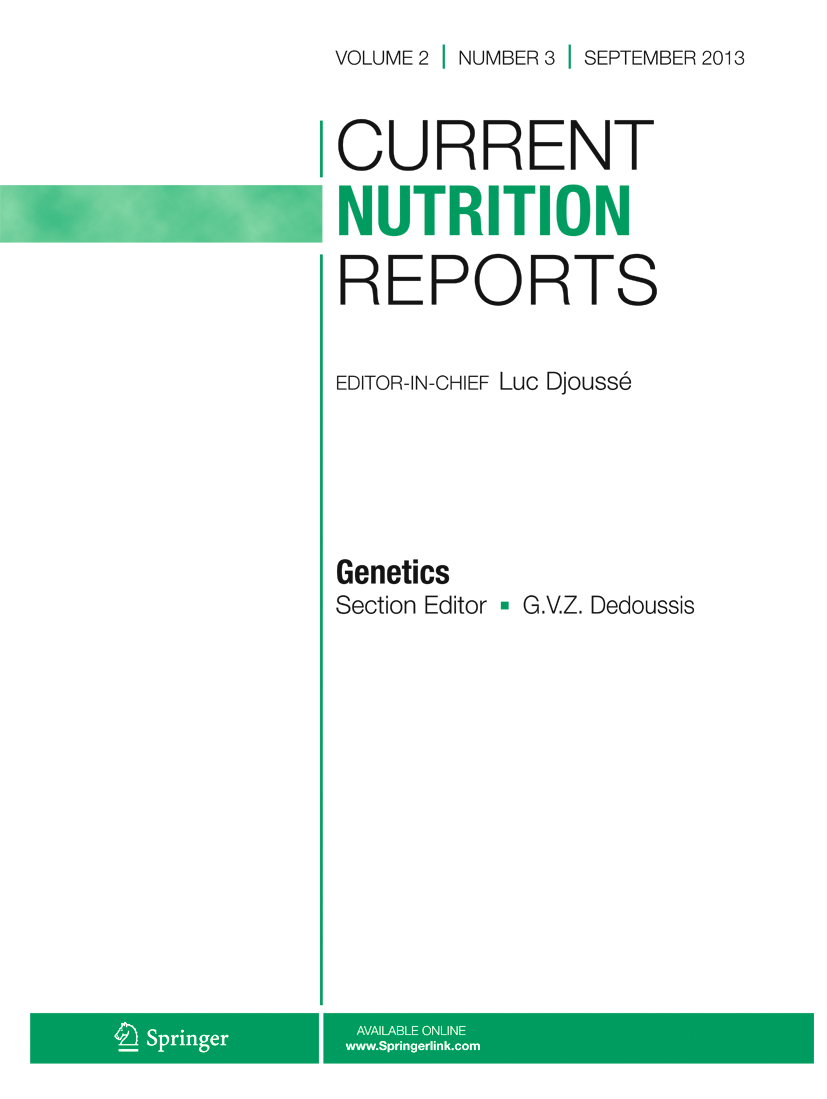
Ziziphus jujuba (Jujube) in Metabolic Syndrome: From Traditional Medicine to Scientific Validation
2024 Oct 01 Current Nutrition Reports Ghasemzadeh Rahbardar M, Fazeli Kakhki H, Hosseinzadeh H
Review Article Obesity Type 2 Diabetes Metabolic Syndrome High Blood Pressure JujubeZiziphus jujuba and its main components, lupeol and betulinic acid, show promise in treating complications of metabolic syndrome, including diabetes, obesity, and hypertension.
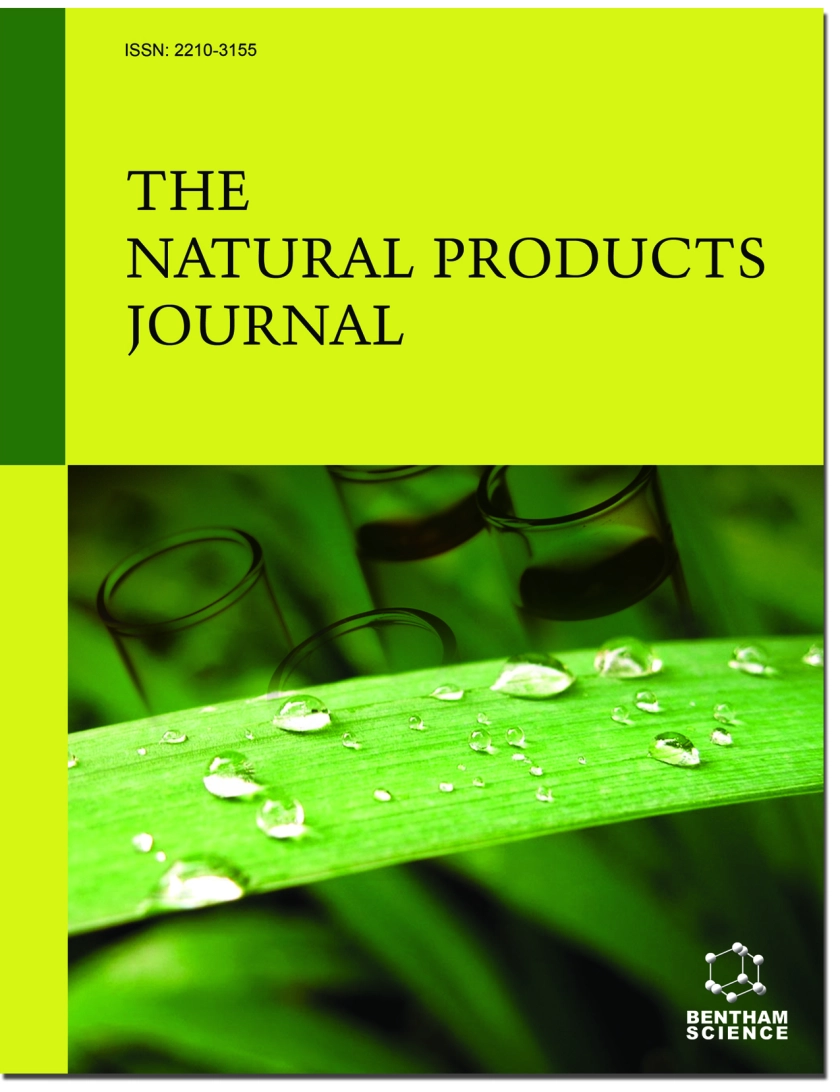
Pumpkin Seeds (Cucurbita spp.) as a Nutraceutical Used In Various Lifestyle Disorders
2024 Feb The Natural Products Journal Wal A, Singh MR, Gupta A, Rathore S, Rout RR, Wal P
Review Article Anticancer Blood Sugar Pumpkin Seed Antioxidant Cardiovascular Disease Depression Anti-ParasitePumpkin seeds are recognised for their medicinal, nutritional, and cosmetic benefits, including anti-diabetic, heart disease prevention, anti-cancer, and antioxidant qualities.
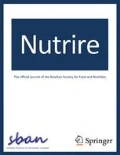
Nutritional and health-beneficial values of almond nuts consumption
2023 Nov 02 Nutrire Ouzir M
Review Article Cardiovascular Disease Cognitive Function Almond Type 2 Diabetes ObesityAlmond consumption has beneficial impacts on cardiovascular diseases, diabetes, obesity, and it can improve cognitive performance and protect against skin aging.
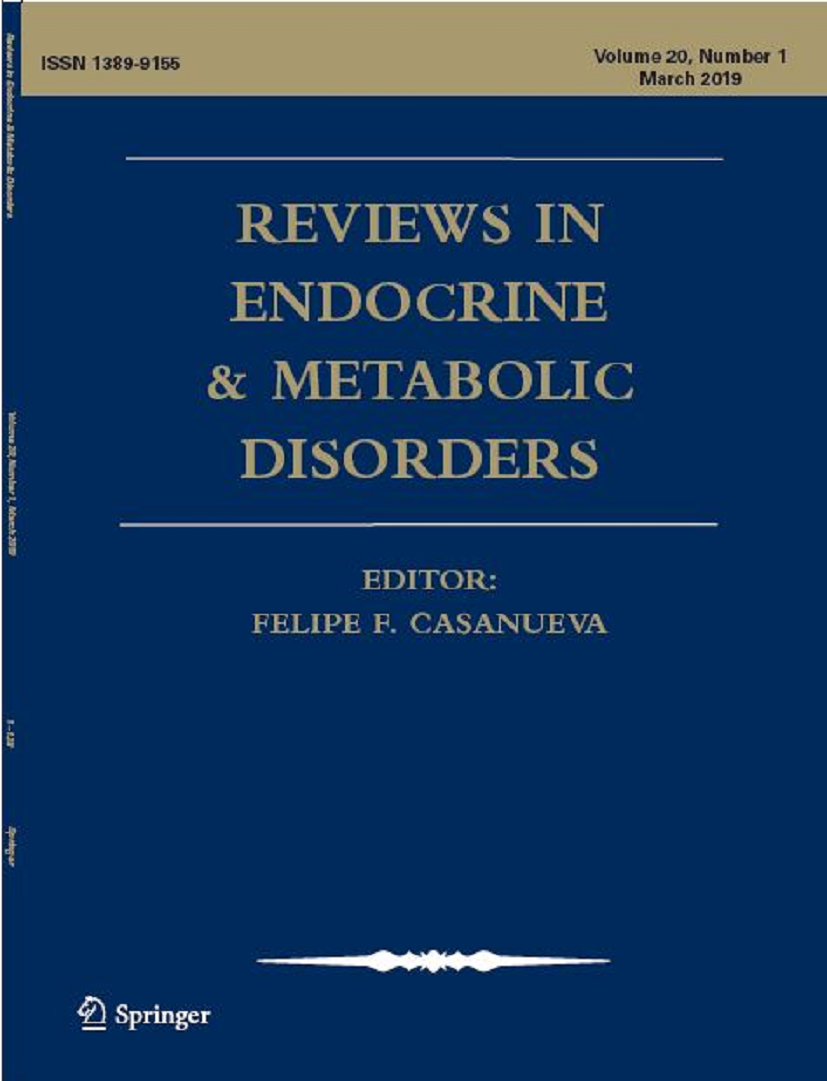
Circadian alignment of food intake and glycaemic control by time-restricted eating: A systematic review and meta-analysis
2023 Nov 22 Reviews in Endocrine and Metabolic Disorders Rovira-Llopis S, Luna-Marco C, Perea-Galera L, Bañuls C, Morillas C, Victor VM
Time-restricted eating (TRE) demonstrated no significant effect on fasting glucose overall, but it did reduce HbA1c levels and fasting insulin, with a tendency to decrease HOMA-IR. The timing of food intake was identified as a crucial factor, with early TRE (eTRE) significantly reducing fasting glucose levels in subjects with overweight or obesity.
Systematic Review Meta-Analysis Intermittent Fasting Circadian Rhythm Blood Sugar Glycaemic Control
Effects of an Unripe Avocado Extract on Glycaemic Control in Individuals with Obesity: A Double-Blinded, Parallel, Randomised Clinical Trial
2023 Nov 17 Nutrients Zhao L, Ingram DK, Gumpricht E, De Paoli T, Teong XT, Liu B, et al.
Randomised Controlled Trial Glucose Blood Sugar AvocadoConsumption of unripe avocado extract in the diet may lower postprandial insulin levels in overweight adults with previously elevated insulin levels.
Research insights are moderated by the Research Hub team and offer an at-a-glance overview of interesting research findings.

2024 Current Nutrition Reports
Ziziphus jujuba and its main components, lupeol and betulinic acid, show promise in treating complications of metabolic syndrome, including diabetes, obesity, and hypertension.
Review Article High Blood Pressure Jujube Metabolic Syndrome Obesity
Ziziphus jujuba (Jujube) in Metabolic Syndrome: From Traditional Medicine to Scientific Validation
Ghasemzadeh Rahbardar M, Fazeli Kakhki H, Hosseinzadeh H

2024 The Natural Products Journal
Pumpkin seeds are recognised for their medicinal, nutritional, and cosmetic benefits, including anti-diabetic, heart disease prevention, anti-cancer, and antioxidant qualities.
Review Article Anti-Parasite Anticancer Antioxidant Blood Sugar Cardiovascular Disease
Pumpkin Seeds (Cucurbita spp.) as a Nutraceutical Used In Various Lifestyle
Disorders
Wal A, Singh MR, Gupta A, Rathore S, Rout RR, Wal P

2023 Nutrients
Consumption of unripe avocado extract in the diet may lower postprandial insulin levels in overweight adults with previously elevated insulin levels.
Randomised Controlled Trial Avocado Blood Sugar Glucose
Effects of an Unripe Avocado Extract on Glycaemic Control in Individuals with Obesity: A Double-Blinded, Parallel, Randomised Clinical Trial
Zhao L, Ingram DK, Gumpricht E, De Paoli T, Teong XT, Liu B, et al.

2023 Nutrire
Almond consumption has beneficial impacts on cardiovascular diseases, diabetes, obesity, and it can improve cognitive performance and protect against skin aging.
Review Article Almond Cardiovascular Disease Cognitive Function Obesity
Nutritional and health-beneficial values of almond nuts consumption
Ouzir M
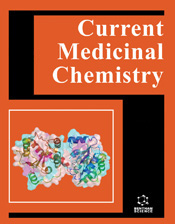
2023 Current Medicinal Chemistry
Consumption of apple cider vinegar significantly improves certain risk factors for cardiometabolic syndrome, notably fasting blood glucose, glycosylated hemoglobin, and total cholesterol.
Systematic Review Apple Cider Vinegar Blood Sugar Cholesterol HbA1C
The Effects of Apple Cider Vinegar on Cardiometabolic Risk Factors:
A Systematic Review and Meta-analysis of Clinical Trials
Dadkhah Tehrani S, Keshani M, Rouhani MH, Moallem SA, Bagherniya M, Sahebkar A
Review Articles
Review articles summarise and critically evaluate the current state of research on a specific topic or field by synthesising multiple primary research studies.

Ziziphus jujuba (Jujube) in Metabolic Syndrome: From Traditional Medicine to Scientific Validation
2024 Oct 01 Current Nutrition Reports Ghasemzadeh Rahbardar M, Fazeli Kakhki H, Hosseinzadeh H
Review Article Obesity Type 2 Diabetes Metabolic Syndrome High Blood Pressure JujubeZiziphus jujuba and its main components, lupeol and betulinic acid, show promise in treating complications of metabolic syndrome, including diabetes, obesity, and hypertension.

Pumpkin Seeds (Cucurbita spp.) as a Nutraceutical Used In Various Lifestyle Disorders
2024 Feb The Natural Products Journal Wal A, Singh MR, Gupta A, Rathore S, Rout RR, Wal P
Review Article Anticancer Blood Sugar Pumpkin Seed Antioxidant Cardiovascular Disease Depression Anti-ParasitePumpkin seeds are recognised for their medicinal, nutritional, and cosmetic benefits, including anti-diabetic, heart disease prevention, anti-cancer, and antioxidant qualities.

Nutritional and health-beneficial values of almond nuts consumption
2023 Nov 02 Nutrire Ouzir M
Review Article Cardiovascular Disease Cognitive Function Almond Type 2 Diabetes ObesityAlmond consumption has beneficial impacts on cardiovascular diseases, diabetes, obesity, and it can improve cognitive performance and protect against skin aging.

Circadian alignment of food intake and glycaemic control by time-restricted eating: A systematic review and meta-analysis
2023 Nov 22 Reviews in Endocrine and Metabolic Disorders Rovira-Llopis S, Luna-Marco C, Perea-Galera L, Bañuls C, Morillas C, Victor VM
Time-restricted eating (TRE) demonstrated no significant effect on fasting glucose overall, but it did reduce HbA1c levels and fasting insulin, with a tendency to decrease HOMA-IR. The timing of food intake was identified as a crucial factor, with early TRE (eTRE) significantly reducing fasting glucose levels in subjects with overweight or obesity.
Systematic Review Meta-Analysis Intermittent Fasting Circadian Rhythm Blood Sugar Glycaemic Control
Effects of olive oil on hepatic steatosis and liver enzymes: A systematic review
2023 Oct Journal of Functional Foods Ma Y, Ding X, Gu J, Zhou S, Jiang Y
The systematic review concludes that olive oil, used for eating or cooking in randomized controlled trials, demonstrated significant reductions in hepatic steatosis grading through ultrasound and decreases in aspartate transaminase and alanine transaminase levels, suggesting promise in ameliorating hepatic steatosis. However, further investigations are needed to explore the potential effects of different olive oil types or olive polyphenols on chronic liver ailments.
Systematic Review Randomised Controlled Trial Obesity Liver Enzymes Olive Oil Fatty Liver Disease Type 2 DiabetesClinical Trials
Clinical trials are research studies that involve people and are conducted to evaluate the safety and efficacy of new treatments or interventions, such as drugs, medical devices, or behavioural therapies.

Effects of an Unripe Avocado Extract on Glycaemic Control in Individuals with Obesity: A Double-Blinded, Parallel, Randomised Clinical Trial
2023 Nov 17 Nutrients Zhao L, Ingram DK, Gumpricht E, De Paoli T, Teong XT, Liu B, et al.
Randomised Controlled Trial Glucose Blood Sugar AvocadoConsumption of unripe avocado extract in the diet may lower postprandial insulin levels in overweight adults with previously elevated insulin levels.

Effects of olive oil on hepatic steatosis and liver enzymes: A systematic review
2023 Oct Journal of Functional Foods Ma Y, Ding X, Gu J, Zhou S, Jiang Y
The systematic review concludes that olive oil, used for eating or cooking in randomized controlled trials, demonstrated significant reductions in hepatic steatosis grading through ultrasound and decreases in aspartate transaminase and alanine transaminase levels, suggesting promise in ameliorating hepatic steatosis. However, further investigations are needed to explore the potential effects of different olive oil types or olive polyphenols on chronic liver ailments.
Systematic Review Randomised Controlled Trial Obesity Liver Enzymes Olive Oil Fatty Liver Disease Type 2 Diabetes
A comparison of the effects of cinnamon, ginger, and metformin consumption on metabolic health, anthropometric indices, and sexual hormone levels in women with poly cystic ovary syndrome: A randomized double-blinded placebo-controlled clinical trial
2022 Nov 29 Frontiers in Nutrition Dastgheib M, Barati-Boldaji R, Bahrampour N, Taheri R, Borghei M, Amooee S, et al.
Randomised Controlled Trial Cinnamon Testosterone Metabolic Syndrome FSH Ginger PCOS Insulin Resistance Metformin Ceylon Cinnamon LHIn women with polycystic ovary syndrome, cinnamon reduced insulin resistance and testosterone levels similar to metformin, and ginger decreased follicle-stimulating and luteinizing hormones.

Chemical composition of pumpkin (Cucurbita maxima) seeds and its supplemental effect on Indian women with metabolic syndrome
2022 Aug Arabian Journal of Chemistry Jane Monica S, John S, Madhanagopal R, Sivaraj C, Khusro A, Arumugam P, et al.
Randomised Controlled Trial Metabolic Syndrome Blood Sugar Pumpkin SeedPumpkin seed supplementation can significantly reduce fasting blood glucose levels in Indian women suffering from metabolic syndrome.
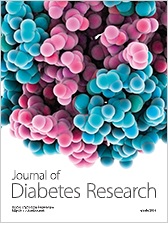
Vitamin D Supplementation for the Treatment of Depressive Symptoms in Women with Type 2 Diabetes: A Randomized Clinical Trial
2022 Mar 03 Journal of Diabetes Research Penckofer S, Ridosh M, Adams W, Grzesiak M, Woo J, Byrn M, et al.
Randomised Controlled Trial Depression Type 2 DiabetesVitamin D supplementation effectively improves depressive symptoms in women with type 2 diabetes and low vitamin D levels, regardless of the dose administered.
Study Protocols
Published study protocols are detailed plans that outline the objectives, methodology, statistical analyses, and organisation of a research study that have been made publicly available for others to review and use as a reference.

Efficacy and safety of acupuncture combined with Chinese herbal medicine in the treatment of type 2 diabetes mellitus: A protocol for a systematic review and meta-analysis
2021 Oct 29 Medicine Bao, Pengjie MD, PhDa; Mi, Jia MD, PhDa, b; Yu, et al.
This study will generate evidence-based data on the treatment of T2DM with acupuncture combined with Chinese herbal medicine and will provide new ideas and treatment modalities to investigate in future research.
Study Protocol Chinese Herbal Medicine Type 2 Diabetes
Efficacy and safety of acupuncture combined with Chinese herbal medicine in the treatment of type 2 diabetes mellitus
2021 Oct 29 Medicine Bao P, Mi J, Yu Z, Liu L, Zhu Z, Liu S, et al.
This study will generate evidence-based data on the treatment of T2DM with acupuncture combined with Chinese herbal medicine and will provide new ideas and treatment modalities to investigate in future research.
Study Protocol Chinese Herbal Medicine AcupuncturePresentation Slides

Review Article
Ziziphus jujuba and its main components, lupeol and betulinic acid, show promise in treating complications of metabolic syndrome, including diabetes, obesity, and hypertension.
Ghasemzadeh Rahbardar M, Fazeli Kakhki H, Hosseinzadeh H

Review Article
Pumpkin seeds are recognised for their medicinal, nutritional, and cosmetic benefits, including anti-diabetic, heart disease prevention, anti-cancer, and antioxidant qualities.
Wal A, Singh MR, Gupta A, Rathore S, Rout RR, Wal P

Randomised Controlled Trial
Consumption of unripe avocado extract in the diet may lower postprandial insulin levels in overweight adults with previously elevated insulin levels.
Zhao L, Ingram DK, Gumpricht E, De Paoli T, Teong XT, Liu B, Mori TA, Heilbronn LK, Roth GS

Review Article
Almond consumption has beneficial impacts on cardiovascular diseases, diabetes, obesity, and it can improve cognitive performance and protect against skin aging.
Ouzir M

Systematic Review
Consumption of apple cider vinegar significantly improves certain risk factors for cardiometabolic syndrome, notably fasting blood glucose, glycosylated hemoglobin, and total cholesterol.
Dadkhah Tehrani S, Keshani M, Rouhani MH, Moallem SA, Bagherniya M, Sahebkar A
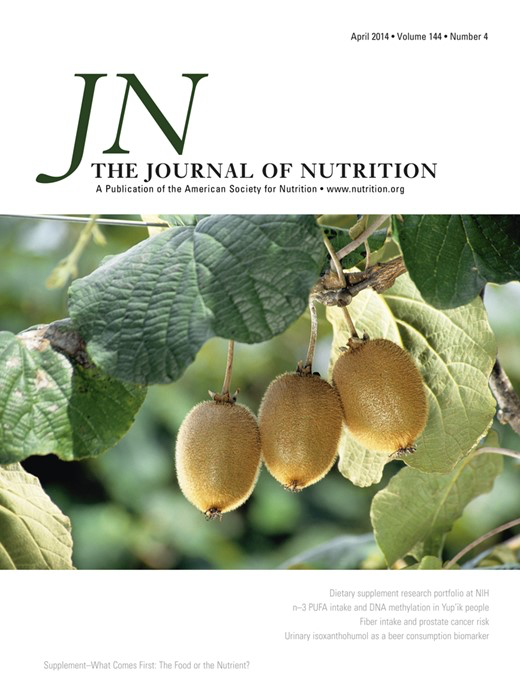
Cohort Study
Avocado consumption is linked to better glucose regulation, with metabolomic biomarkers of avocado intake showing even stronger associations with lower glycemia.
Wood AC, Goodarzi MO, Senn MK, Gadgil MD, Graca G, Allison MA, Tzoulaki I, Mi MY, Greenland P, Ebbels T, Elliott P, Tracy RP, Herrington DM, Rotter JI

Experimental Study
Theabrownin from dark tea can potentially reverse insulin resistance and regulate glycolipid metabolism, with longer fermented samples showing greater effects.
Liu J, Wang X, Zhu Y, Deng H, Huang X, Jayavanth P, Xiao Y, Wu J, Jiao R
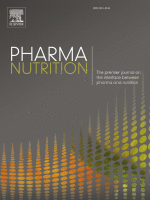
Review Article
Soy protein, bioactive peptides, and isoflavones are generally safe for consumption and may help reduce the risk of several significant health conditions.
Tan ST, Tan SS, Tan CX

Review Article
Soybean intake can potentially reduce risks of several cancers, type 2 diabetes, osteoporosis, and hot flashes, and it may negatively impact some drug treatments and cause allergies.
Kang JH, Dong Z, Shin SH
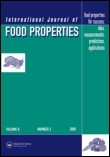
Review Article
Plums, which are rich in bioactive compounds, antioxidants, and vitamins, can help maintain blood glucose level, bone health, heart health and even treat certain cancers.
Ayub H, Nadeem M, Mohsin M, Ambreen S, Khan F, Oranab S, Rahim M, Zubair khalid M, Zongo E, Zarlasht M, Ullah S

Cohort Study
Consuming “Sneznik-1/79” mineral water significantly improves intestinal health and reduces cholesterol in type 2 diabetes patients.
Jovicic N, Andjic M, Novakovic J, Jeremic N, Zivkovic V, Srejovic I, Stanojevic D, Ristic P, Bolevich S, Jakovljevic V

Review Article
Sardines, being an affordable source of Omega-3 and other cardioprotective nutrients, can potentially reduce the need for Omega-3 supplementation and manage cardiometabolic diseases.
Santos HO, May TL, Bueno AA

Systematic Review
Tart cherry juice shows promise in aiding blood sugar control and supporting heart health, highlighting its potential as a natural dietary addition.
Moosavian SP, Maharat M, Chambari M, Moradi F, Rahimlou M

Randomised Controlled Trial
In women with polycystic ovary syndrome, cinnamon reduced insulin resistance and testosterone levels similar to metformin, and ginger decreased follicle-stimulating and luteinizing hormones.
Dastgheib M, Barati-Boldaji R, Bahrampour N, Taheri R, Borghei M, Amooee S, Mohammadi-Sartang M, Wong A, Babajafari S, Mazloomi SM
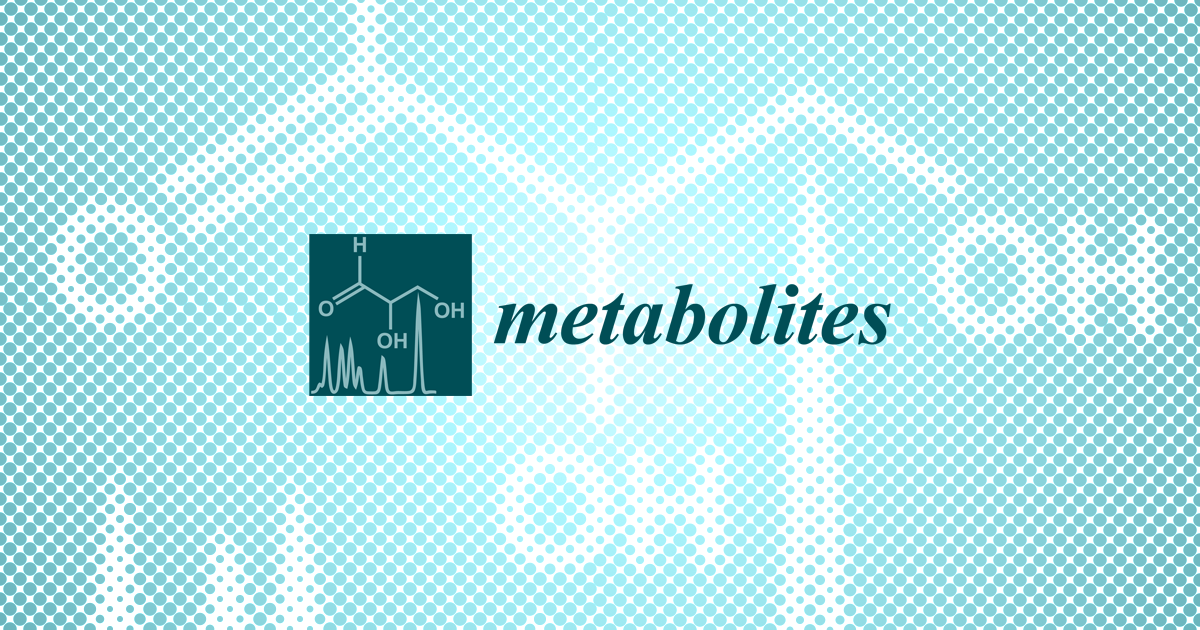
Cohort Study
Frequent consumption of sugar-sweetened coffee can adversely affect blood sugar control in patients with diabetes mellitus in Korea.
Yoo H, Park K
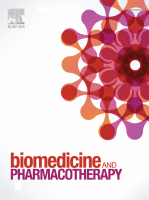
Review Article
Pomegranate extract and its phytochemicals can potentially inhibit severe acute respiratory syndrome coronavirus 2 (SARS-COV-2) and improve gut microbiota, preventing obesity and diabetes.
Maphetu N, Unuofin JO, Masuku NP, Olisah C, Lebelo SL

Randomised Controlled Trial
Pumpkin seed supplementation can significantly reduce fasting blood glucose levels in Indian women suffering from metabolic syndrome.
Jane Monica S, John S, Madhanagopal R, Sivaraj C, Khusro A, Arumugam P, Gajdács M, Esther Lydia D, Umar Khayam Sahibzada M, Alghamdi S, Almehmadi M, Emran TB
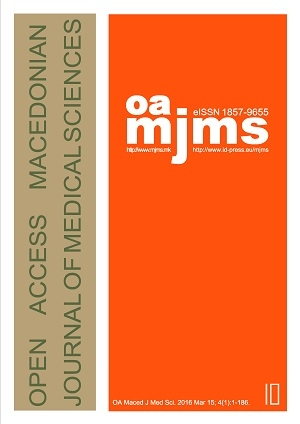
Systematic Review
Pumpkin seeds, in combination with other plants, show potential as an alternative treatment method for diabetes mellitus.
Tasya Z, Amiruddin R, Syam A, Thamrin Y

Animal Study
Certain natural mineral waters, when combined with a low-calorie diet, effectively reduce cholesterol and glucose levels in mice with metabolic syndrome.
Narciso L, Martinelli A, Torriani F, Frassanito P, Bernardini R, Chiarotti F, Marianelli C

Review Article
Cherries and blueberries, rich in phenolic compounds, can be effectively used in pharmaceutical products, smart foods, functional beverages, and nutraceuticals to prevent or treat diseases.
Gonçalves AC, Nunes AR, Flores-Félix JD, Alves G, Silva LR
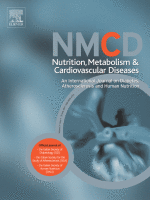
Meta-Analysis
Blueberry and cranberry consumption significantly lowered fasting blood glucose and glycated hemoglobin levels in individuals with diabetes.
Delpino FM, Figueiredo LM, Gonçalves da Silva T, Flores TR

Review Article
Extra virgin olive oil (EVOO) has beneficial health properties and can promote cardiovascular health, lipoprotein metabolism, and diabetes management in clinical nutrition.
Jiménez-Sánchez A, Martínez-Ortega AJ, Remón-Ruiz PJ, Piñar-Gutiérrez A, Pereira-Cunill JL, García-Luna PP

Randomised Controlled Trial
Vitamin D supplementation effectively improves depressive symptoms in women with type 2 diabetes and low vitamin D levels, regardless of the dose administered.
Penckofer S, Ridosh M, Adams W, Grzesiak M, Woo J, Byrn M, Kouba J, Sheean P, Kordish C, Durazo-Arvizu R, Wallis D, Emanuele MA, Halaris A
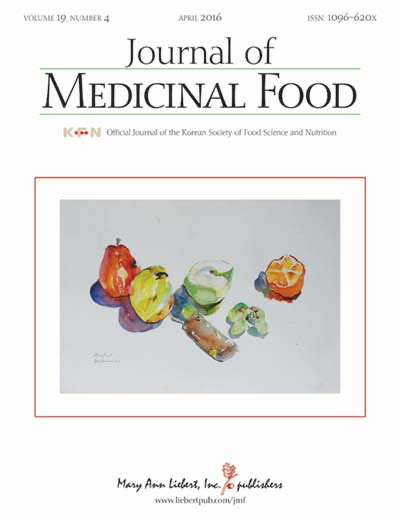
Systematic Review
Raspberry consumption can help to reduce blood glucose levels and stabilize the blood lipid profile due to its bioactive compounds.
Piña-Contreras N, Martínez-Moreno AG, Ramírez-Anaya JDP, Espinoza-Gallardo AC, Valdés EHM

Systematic Review
Consumption of sesame seeds and its products positively influences human glucose metabolism, potentially making it a beneficial addition to glucose-lowering diets.
Sohouli MH, Haghshenas N, Hernández‐Ruiz , Shidfar F
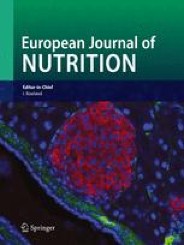
Randomised Controlled Trial
Lemon juice boosts gastric secretions and emptying rate, and reduces blood sugar response to starchy food, potentially due to acid-inhibition of digestion enzyme in saliva.
Freitas D, Boué F, Benallaoua M, Airinei G, Benamouzig R, Lutton E, Jourdain L, Dubuisson RM, Maître X, Darrasse L, Le Feunteun S

Meta-Analysis
Tea supplements, especially green tea, significantly decrease fasting blood glucose and fasting insulin levels and reduce body weight in women with polycystic ovary syndrome.
Shen W, Pan Y, Jin B, Zhang Z, You T, Qu Y, Han M, Yuan X, Zhang Y
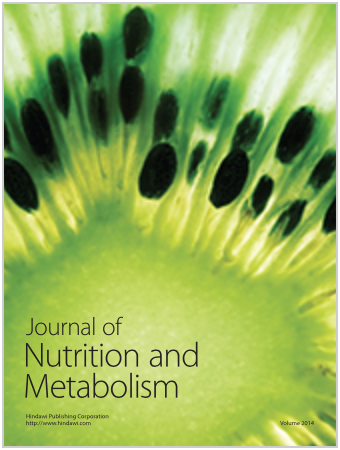
Review Article
The pomegranate plant has a rich inventory of phytochemical constituents showing pharmacological efficiency in treating cardiovascular and endocrine diseases.
Eghbali S, Askari SF, Avan R, Sahebkar A
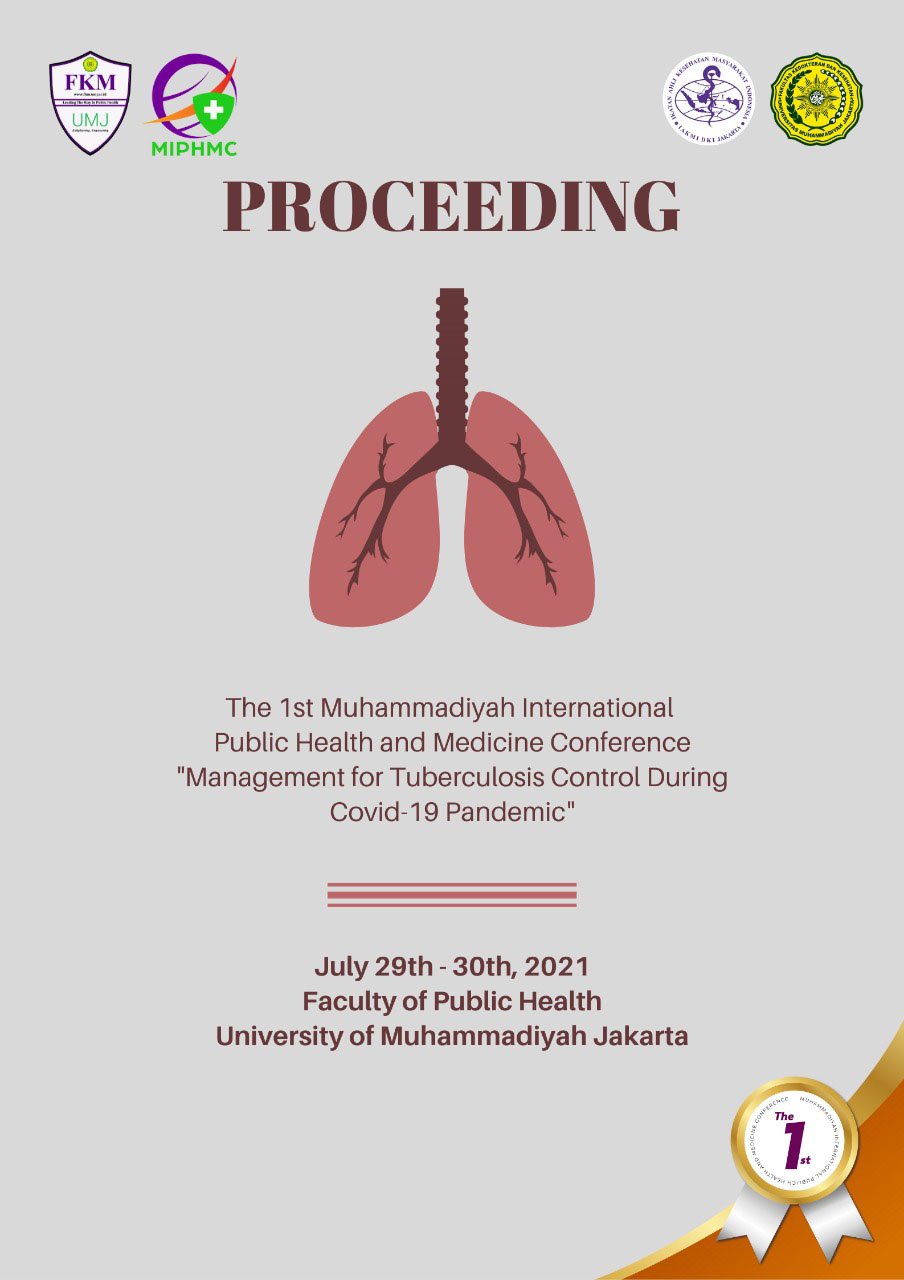
Cohort Study
Consumption of sardines can effectively prevent type 2 diabetes mellitus and hypertension, particularly in senior citizens, due to their high omega 3, EPA, and DHA content.
Nurdiana Febriyanti V

Cohort Study
Sardines are highly proven to be able to effectively prevent type 2 diabetes, prevent hypertension, and lower blood pressure, especially for senior citizens.
Nurdiana Febriyanti V
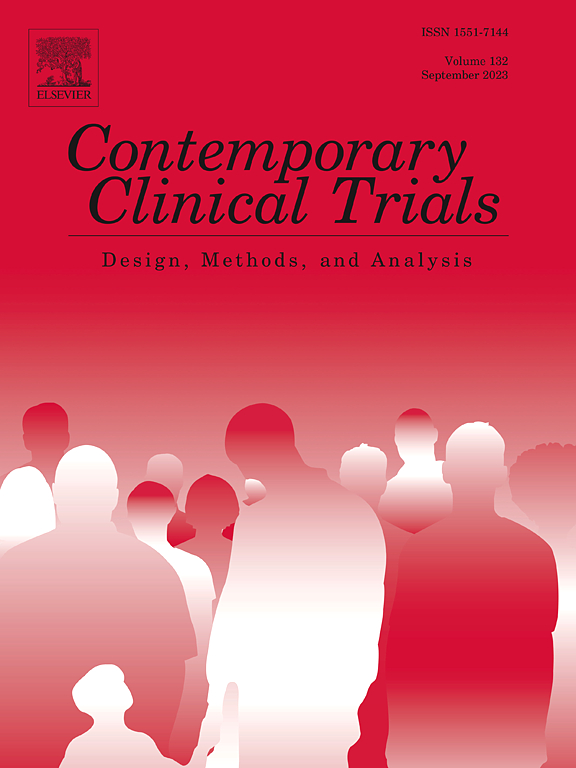
Randomised Controlled Trial
Consumption of one avocado per day can potentially reduce visceral adiposity and subsequently decrease the risk of diabetes and cardiovascular disease.
Reboussin DM, Kris-Etherton PM, Lichtenstein AH, Li Z, Sabate J, Matthan NR, Petersen K, Rajaram S, Vitolins M, Ford N

Systematic Review
Cinnamon supplementation may significantly enhance metabolic status in women with polycicstic ovary syndrome, notably improving high-density lipoprotein and insulin sensitivity, and decreasing low-density lipoprotein, triglyceride, and blood glucose levels.
Maleki V, Faghfouri AH, Tabrizi FPF, Moludi J, Saleh-Ghadimi S, Jafari-Vayghan H, Qaisar SA

Review Article
Recent findings suggest that the molecular background to the development of insulin resistance may be related to vitamin D deficiency.
Contreras-Bolívar V, García-Fontana B, García-Fontana C, Muñoz-Torres M

Systematic Review
Almond-based diets may be effective in promoting short-chain fatty acid-producing bacteria and lowering glycated haemoglobin and body mass index in patients with type 2 diabetes compared with control.
Ojo O, Wang XH, Ojo OO, Adegboye ARA

Randomised Controlled Trial
Pomegranate extract supplement shows potential in improving glycemic indicators, serum lipids, anthropometrics, and blood pressure in patients with nonalcoholic fatty liver disease.
Goodarzi R, Jafarirad S, Mohammadtaghvaei N, Dastoorpoor M, Alavinejad P

Review Article
Coffee consumption may contribute to the prevention of several inflammatory diseases and types of cancer, with reduced mortality risk deemed safe up to 400mg of caffeine per day.
Barrea L, Pugliese G, Frias-Toral E, El Ghoch M, Castellucci B, Chapela SP, Carignano MA, Laudisio D, Savastano S, Colao A, Muscogiuri G

Systematic Review
Drinking coffee may be linked to lower mortality risk in type 2 diabetes patients.
Shahinfar H, Jayedi A, Khan TA, Shab-Bidar S

Randomised Controlled Trial
Combined exercise and coffee consumption significantly reduce fasting blood sugar and abdominal obesity in middle-aged, pre-diabetic men.
Taheri AR, Talebi N

Systematic Review
Apple cider vinegar intake can significantly decrease total cholesterol and fasting plasma glucose levels contributing to better cardiovascular health among adults.
Hadi A, Pourmasoumi M, Najafgholizadeh A, Clark CCT, Esmaillzadeh A

Systematic Review
The consumption of cocoa or dark chocolate can reduce low-density lipoprotein cholesterol and fasting blood sugar levels in diabetic patients.
Darand M, Hajizadeh Oghaz M, Hadi A, Atefi M, Amani R
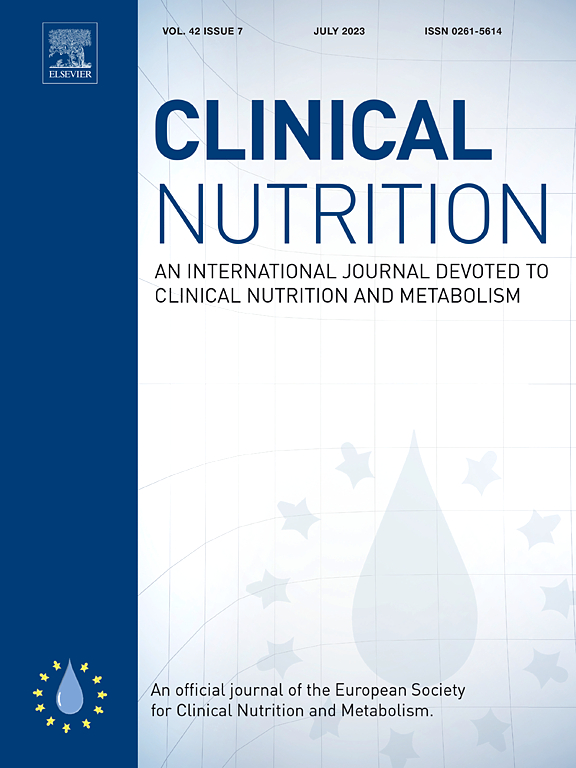
Randomised Controlled Trial
Eating sardines twice a week for a year significantly reduces the risk of developing type 2 diabetes in prediabetic individuals aged 65 and above.
Díaz-Rizzolo DA, Serra A, Colungo C, Sala-Vila A, Sisó-Almirall A, Gomis R

Randomised Controlled Trial
A one-year, sardine-enriched diet in an elderly population with pre-diabetes exerts a greater protective effect against developing type 2 diabetes and cardiovascular events.
Díaz-Rizzolo DA, Serra A, Colungo C, Sala-Vila A, Sisó-Almirall A, Gomis R

Randomised Controlled Trial
Enriching a regular diet with oat β-glucan can improve glycemic control, augment feelings of fullness, and positively modulate gut microbiota in individuals with type-2 diabetes.
Pino JL, Mujica V, Arredondo M

Systematic Review
Acupuncture appears to have an effect on diabetic peripheral neuropathy, effectively improving nerve conduction and clinical symptoms.
Yu B, Li M, Huang H, Ma S, Huang K, Zhong Z, Yu S, Zhang L.
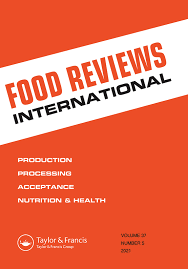
Review Article
Oily fish, particularly sardines, due to their high omega-3 and taurine content, may play a protective role in slowing the progression towards type 2 diabetes.
Díaz-Rizzolo DA, Miro A, Gomis R
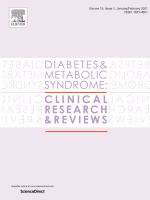
Systematic Review
The supplementary intake of green tea does not significantly affect blood glucose, fasting insulin, hemoglobin A1c, and insulin resistance in patients with type 2 diabetes mellitus.
Asbaghi O, Fouladvand F, Gonzalez MJ, Ashtary-Larky D, Choghakhori R, Abbasnezhad A
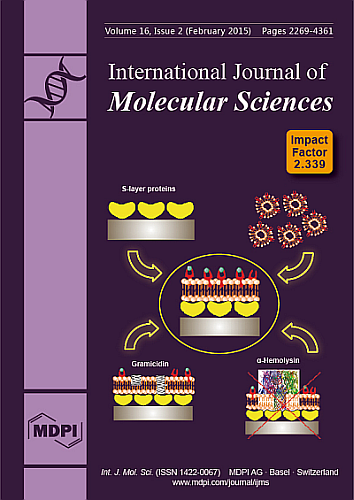
Review Article
Regular coffee consumption, due to its bioactive compounds, may have protective effects against chronic disorders and certain neurodegenerative conditions.
Socała K, Szopa A, Serefko A, Poleszak E, Wlaź P
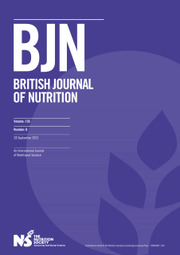
Systematic Review
Consuming walnuts does not significantly alter blood glucose levels, indicating cardiovascular protective effects of walnuts are not due to improved glycaemic control.
Neale, E., Guan, V., Tapsell, L., & Probst, Y.
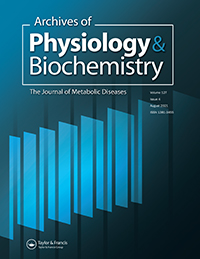
Systematic Review
Green tea supplementation raises adiponectin levels in patients with type 2 diabetes mellitus.
Asbaghi O, Fouladvand F, Ashtary-Larky D, Bagheri R, Choghakhori R, Wong A, Baker JS, Abbasnezhad A
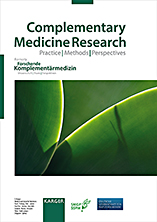
Systematic Review
Green tea consumption notably reduces body weight, body mass index, and body fat, especially in long-term use, at lower dosages, and among overweight individuals with type-2 diabetes.
Asbaghi O, Fouladvand F, Gonzalez MJ, Aghamohammadi V, Choghakhori R, Abbasnezhad A

Review Article
Citrus species are valuable natural sources of flavonoids and a promising source for future treatments aimed at the prevention and management of diabetes and related complications.
Gandhi GR, Vasconcelos ABS, Wu DT, Li HB, Antony PJ, Li H, Geng F, Gurgel RQ, Narain N, Gan RY.

Clinical Study
Montmorency tart cherry juice can significantly improve blood pressure, fasting glucose, cholesterol rates and respiratory exchange ratio in those with metabolic syndrome.
Desai T, Roberts M, Bottoms L
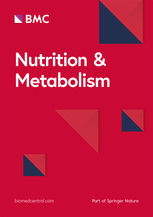
Systematic Review
Green tea supplementation significantly lowers fasting glucose levels but does not significantly affect fasting insulin and haemoglobin A1c values.
Xu R, Bai Y, Yang K, Chen G

Systematic Review
Green tea extract supplement intake reduces serum triglyceride and total cholesterol in patients with type 2 diabetes mellitus, especially when used long term.
Asbaghi O, Fouladvand F, Moradi S, Ashtary-Larky D, Choghakhori R, Abbasnezhad A

Theoretical Article
Coffee, like many fruits and vegetables, activates a cellular response that boosts antioxidants and repair enzymes, which contributes to a lower risk of several diseases.
Kolb H, Kempf K, Martin S
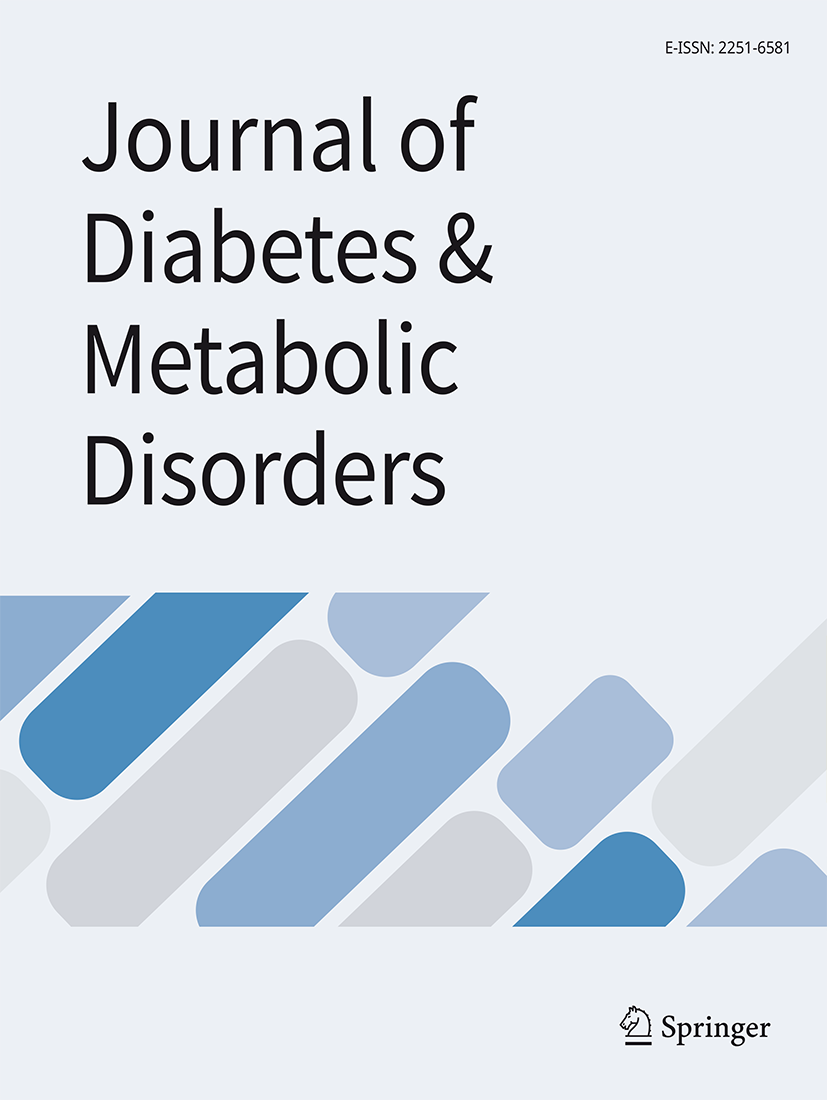
Systematic Review
Green coffee supplementation significantly decreases fasting blood sugar, insulin, and triglycerides while boosting high-density lipoprotein levels.
Morvaridi M, Rayyani E, Jaafari M, Khiabani A, Rahimlou M

Randomised Controlled Trial
Lemon juice, but not black tea, can lower and delay the blood glucose concentration peak after consuming bread.
Freitas D, Boué F, Benallaoua M, Airinei G, Benamouzig R, Le Feunteun S

Systematic Review
Cinnamon supplementation in type 2 diabetes patients significantly reduces systolic and diastolic blood pressure, but doesn't significantly affect body weight and waist circumference.
Jamali N, Jalali M, Saffari-Chaleshtori J, Samare-Najaf M, Samareh A

Systematic Review
These reports suggest the benefits of a walnut-enriched diet in brain disorders and in other chronic diseases, due to the additive or synergistic effects of walnut components for protection against oxidative stress and inflammation in these diseases.
Chauhan A, Chauhan V.
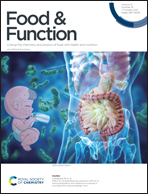
Review Article
Coffee and decaffeinated coffee appear to provide long-term protection against developing type 2 diabetes, potentially due to the influence of chlorogenic acids.
Williamson G
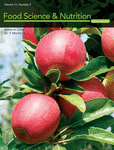
Randomised Controlled Trial
Pomegranate juice can reduce melatonin, increase insulin levels, and improve insulin resistance in individuals with impaired fasting glucose.
Banihani SA, Fashtaky RA, Makahleh SM, El‐Akawi ZJ, Khabour OF, Saadeh NA

Review Article
Traditional Chinese medicine, especially Zuo Gui Wan, red raspberry leaves, and Orthosiphon stamineus, seems to control gestational diabetes effectively without reported toxicity.
Xu YXZ, Xi S, Qian X
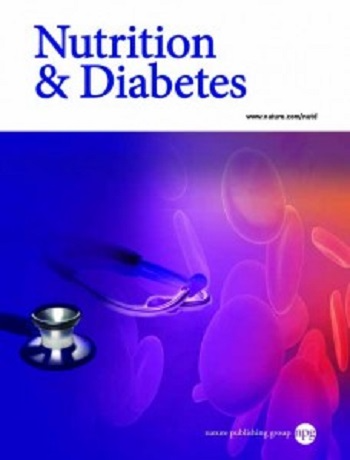
Systematic Review
Pu-erh tea has considerable inhibitory effects on alpha-amylase and alpha-glucosidase, indicating potential anti-hyperglycemic benefits.
Yang, CY., Yen, YY., Hung, KC. et al.

Review Article
Cocoa and cocoa products, enriched with polyphenols, have potential health benefits including enhanced vascular function, cancer prevention, and improvement in learning and memory.
E S, Panjikkaran ST, L SC, R RP
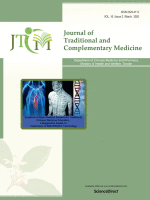
Systematic Review
Coffee consumption, in the long term, improves glucose metabolism but may cause unfavourable acute effects.
Reis CEG, Dórea JG, da Costa THM

Systematic Review
Drinking certain types of mineral water can positively influence metabolic syndrome factors like blood pressure, cholesterol, and blood sugar levels.
Costa-Vieira D, Monteiro R, Martins MJ

There is low quality evidence that bitter melon adjunct preparations improved glycemic control in type 2 diabetes mellitus patients.
Peter EL, Kasali FM, Deyno S, Mtewa A, Nagendrappa PB, Tolo CU, Ogwang PE, Sesaazi D

Systematic Review
Consumption of virgin avocado oil, rich in monounsaturated fatty acids and bioactive components, may help manage chronic diseases like hypertension, diabetes, and lower cardiometabolic risk.
Tan CX

Systematic Review
Consumption of chocolate shows a possible slight reduction in risk for coronary heart disease and stroke, with no association with other chronic diseases studied.
Morze J, Schwedhelm C, Bencic A, Hoffmann G, Boeing H, Przybylowicz K, Schwingshackl L

Randomised Controlled Trial
Synbiotic pomegranate juice (containing inulin and lactobacillus) can improve insulin resistance, reduce testosterone level, and aid weight loss in women suffering from Polycystic Ovarian Syndrome.
Esmaeilinezhad Z, Babajafari S, Sohrabi Z, Eskandari MH, Amooee S, Barati-Boldaji R

Animal Study
Ripened Pu-erh tea extract demonstrates a stronger anti-diabetic impact than raw Pu-erh tea extract, potentially due to the fermentation process and its probiotic benefits to certain gut bacteria.
Qianzhi Ding, Wei Zheng, Bowei Zhang, Xiaojuan Chen, Jie Zhang, Xu Pang, Yong Zhang, Dexian Jia, Surui Pei Yuesheng Dong Baiping Ma
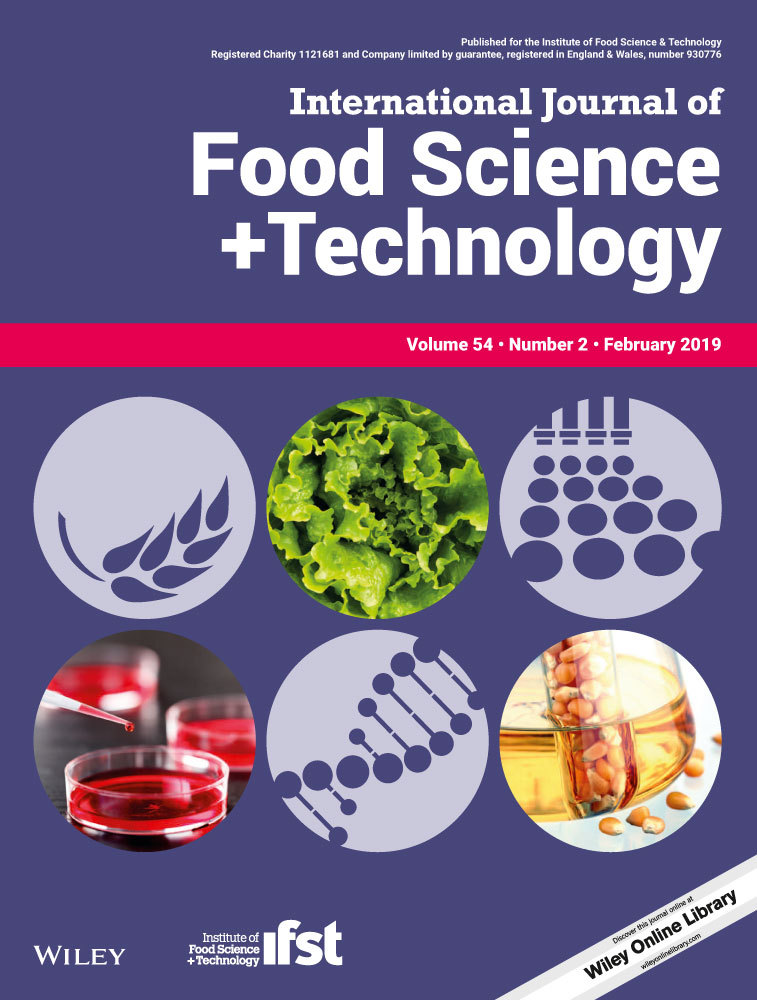
Animal Study
Pu-erh tea has a significant anti-hyperglycaemic effect, with its efficacy increasing over time and with higher dosages.
Lin, H.-C., Lee, C.-T., Yen, Y.-Y., Chu, C.-L., Hsieh, Y.-P., Yang, C.-S. and Lan, S.-J.

Randomised Controlled Trial
Consuming two SunGold kiwifruits daily over 12 weeks improved vitamin C status, reduced blood pressure, waist measurements and altered faecal microbiota composition in prediabetic individuals.
Wilson R, Willis J, Gearry R, Hughes A, Lawley B, Skidmore P, Frampton C, Fleming E, Anderson A, Jones L, Tannock G, Carr A
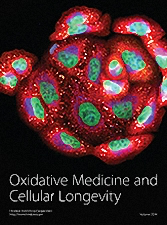
Review Article
Honey, a natural food supplement, emerges as a potent therapeutic antioxidant with diverse medicinal effects, including wound healing, antibacterial, anti-inflammatory, antifungal, antiviral, and antidiabetic properties, suggesting its potential as a novel antioxidant in managing oxidative stress-related diseases.
Ahmed S, Sulaiman SA, Baig AA, Ibrahim M, Liaqat S, Fatima S, Jabeen S, Shamim N, Othman NH
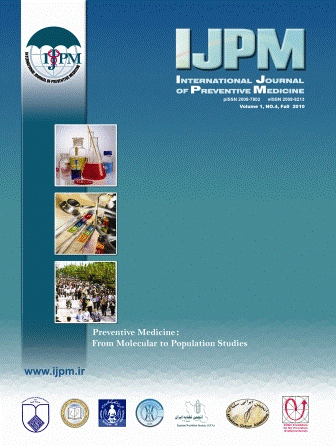
Systematic Review
Decaffeinated coffee enriched with chlorogenic acid does not significantly affect blood glucose levels in healthy humans, even though it does impact animals.
Faraji H
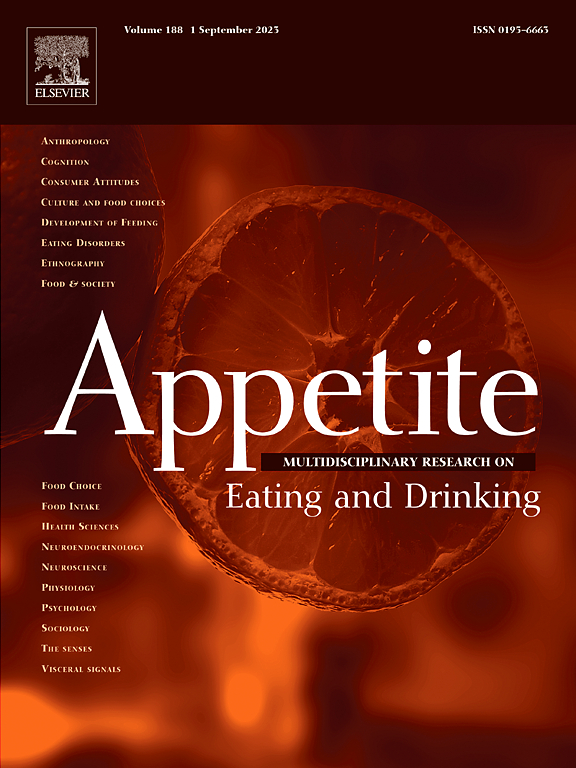
Randomised Controlled Trial
Dark chocolate reduces subsequent food intake in postmenopausal women more effectively than milk and white chocolate.
Marsh CE, Green DJ, Naylor LH, Guelfi KJ

Systematic Review
Moderate chocolate consumption (up to 6 servings per week) is linked to a decreased risk of coronary heart disease, stroke, and diabetes, according to a meta-analysis of prospective studies.
Yuan S, Li X, Jin Y, Lu J

Systematic Review
Avocado, with its lipid-lowering, antihypertensive, antidiabetic, anti-obesity, and cardioprotective effects, can potentially manage metabolic syndrome more efficaciously than synthetic treatment options.
Tabeshpour J, Razavi BM, Hosseinzadeh H

Review Article
Coffee consumption, up to three cups a day, can reduce the risk of Type-2 diabetes and metabolic syndrome in adults.
Baspinar B, Eskici G, Ozcelik AO
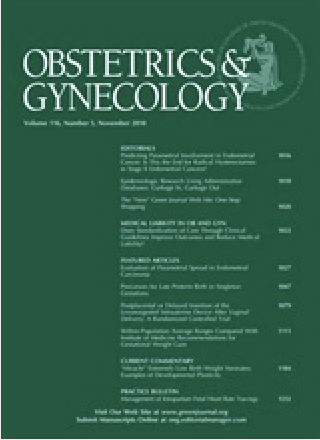
Case Report
Raspberry leaf consumption may decrease insulin requirements in pregnant women with gestational diabetes mellitus.
Cheang KI, Nguyen TT, Karjane NW, Salley KES
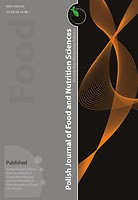
Review Article
Goji berries, classified as superfruits, possess potential beneficial implications in the dietary prevention of diseases like diabetes, cardiovascular diseases, and cancer.
Kulczyński B, Gramza-Michałowska A

Clinical Study
Drinking 1litre of mineral water daily with meals can reduce risk factors for heart and metabolic diseases, particularly when replacing sugary drinks.
Toxqui L, Vaquero M
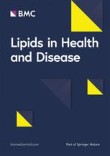
Randomised Controlled Trial
A sardine-enriched diet may have beneficial effects on cardiovascular risk and alters gut microbiota composition in patients with type 2 diabetes.
Balfegó M, Canivell S, Hanzu FA, Sala-Vila A, Martínez-Medina M, Murillo S, Mur T, Ruano EG, Linares F, Porras N, Valladares S, Fontalba M, Roura E, Novials A, Hernández C, Aranda G, Sisó-Almirall A, Rojo-Martínez G, Simó R, Gomis R

Systematic Review
The studies assessed showed that sesame could have a significant effect on oxidative stress and the antioxidant defense system, being considered a food with an important antioxidant function in the different populations studied.
Gouveia Lde A, Cardoso CA, de Oliveira GM, Rosa G, Moreira AS.
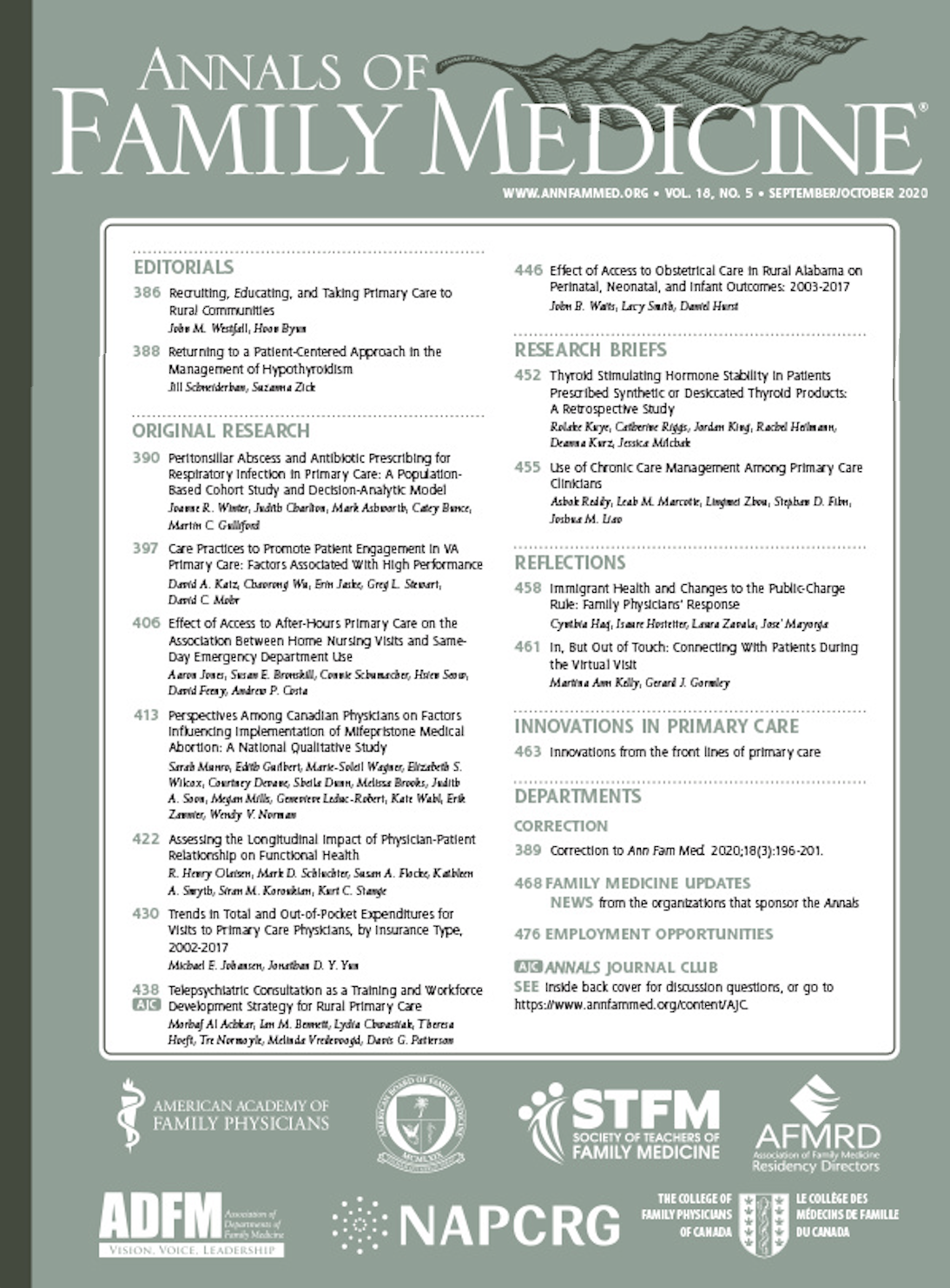
Systematic Review
The consumption of cinnamon is associated with a statistically significant decrease in levels of fasting plasma glucose, total cholesterol, LDL-C, and triglyceride levels, and an increase in HDL-C levels.
Robert W. Allen, Emmanuelle Schwartzman, William L. Baker, Craig I. Coleman and Olivia J. Phung

Experimental Study
Pumpkin seeds and their extracts, including Trigonelline, Nicotinic acid, and D-chiro-inositol, offer potential for controlling blood sugar levels in diabetes patients.
Adams GG, Imran S, Wang S, Mohammad A, Kok MS, Gray DA, Channell GA, Harding SE

Systematic Review
Cinnamomum Zeylanicum shows potential medicinal effects such as reducing blood glucose levels and possessing anti-microbial properties.
Ranasinghe P, Pigera S, Premakumara GAS, Galappaththy P, Constantine GR, Katulanda P
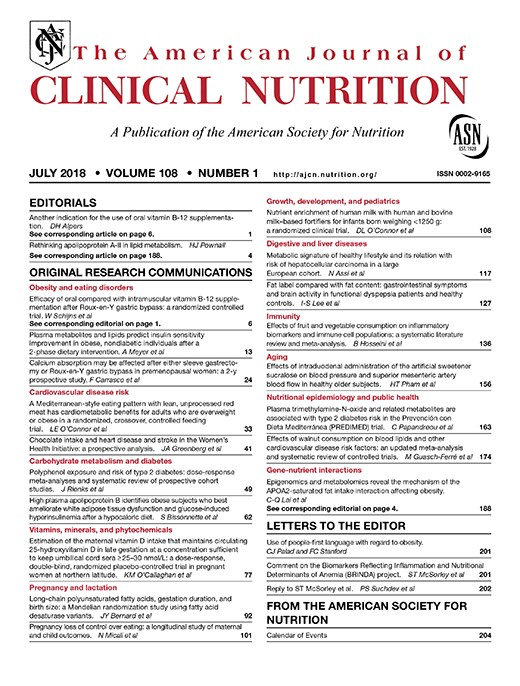
Systematic Review
Regular chocolate or cocoa consumption, rich in flavan-3-ols, has been associated with improved insulin resistance and blood vessel function, suggesting potential cardiovascular benefits.
Hooper L, Kay C, Abdelhamid A, Kroon PA, Cohn JS, Rimm EB, Cassidy A
Executive Summary
Write an executive summary in the form of a blog article on the topic of "Research into Chinese medicine treatment for Type 2 Diabetes" summarising the research below and using language that can be easily understood by patients and avoiding medical jargon using a professional and caring tone of voice.
Write an executive summary in the form of a blog article on the topic of "Researched Chinese medicine treatments for Type 2 Diabetes" summarising the research below in an objective and easy to understand way, and using language that can be easily understood by patients. Group the article into Chinese medicine treatments first, followed by nutrition and other treatments. Avoid using medical jargon and use a professional and caring tone of voice.
Write me a concise but easy to understand executive summary on the topic of "Chinese medicine treatments for Type 2 Diabetes" based on the following research that I will give you. Your summary should be 2 paragraphs long in Australian English spelling and include references to the studies.
A Review Article published in 2024 in the journal Current Nutrition Reports found that Ziziphus jujuba and its main components, lupeol and betulinic acid, show promise in treating complications of metabolic syndrome, including diabetes, obesity, and hypertension. The research assessed the properties of Ziziphus jujuba and its main bioactive agents, lupeol and betulinic acid, in relation to metabolic syndrome. Investigations focussed on their potential roles in glucose uptake enhancement, hepatic glucose synthesis reduction, insulin sensitivity improvement, and lipid profile modulation. Studies involved identifying the influence of these substances on key signaling pathways and insulin signaling proteins, as well as evaluating their anti-adipogenic effects and capacity to improve endothelial function. Ziziphus jujuba and its constituents exhibited potential therapeutic benefits for metabolic syndrome by facilitating glucose uptake, reducing glucose synthesis, and improving insulin sensitivity. They also showed potential in moderating lipid synthesis and fat accumulation, demonstrating anti-fatty effects and a capacity to influence adipogenic enzymes and transcription factors. Moreover, these substances demonstrated enhanced endothelial function, reflecting positively on vascular health. These accumulative findings suggest promising potential for Z. jujuba, lupeol, and betulinic acid as natural treatments for metabolic syndrome complications.
A Review Article published in 2024 in the journal The Natural Products Journal found that Pumpkin seeds are recognised for their medicinal, nutritional, and cosmetic benefits, including anti-diabetic, heart disease prevention, anti-cancer, and antioxidant qualities. The review article undertakes a comprehensive exploration of the nutraceutical importance of pumpkin seeds. The methodology includes an examination of the various known substances in the seeds, such as phytoestrogens, unsaturated fatty acids, and vitamin E. The study then delves into the different benefits and therapeutic uses of these components stretching from medicinal to nutritional to cosmetic applications. The results of this research are diverse and impressive, with implications for several major health sectors. Their potential anti-diabetic and hypoglycemic properties could suggest a significant role in the management and prevention of diabetes. Meanwhile, the seeds' potential in cardiovascular disease prevention could help to address one of the most pressing global health issues. Moreover, potential anti-cancer properties imply that these seeds could even have a part to play in cancer prevention. The review also described potential additional qualities, such as antidepressant, anti-helminthic (parasite-removing), and antioxidant effects.
A Randomised Controlled Trial published in 2023 in the journal Nutrients found that Consumption of unripe avocado extract in the diet may lower postprandial insulin levels in overweight adults with previously elevated insulin levels. In this study, a double-blinded, randomised controlled trial was performed on 60 non-diabetic adults (with a majority of 47 being women, average age 48 years, BMI 34.0 kg/m). The participants were stratified by sex and randomised into two groups. One group daily consumed an extract from unripe avocado (10 g finely ground, freeze-dried unripe avocado), while the other took a placebo (10 g finely ground cornmeal supplemented with 5% spinach powder) over a period of 12 weeks. The primary outcome measured was the change in glucose area under the curve (AUC) in response to a 75 g oral glucose tolerance test. The results showed no significant differences between both groups in terms of glucose AUC, insulin AUC, or cardiovascular outcomes. However, in a subgroup analysis focusing on participants with above median baseline postprandial insulin levels, there was a notable reduction in insulin AUC in those who consumed the avocado extract compared to the placebo. This suggests that the daily consumption of an unripe avocado extract, enriched in MH, might not significantly impact glucose tolerance or insulin sensitivity in obese non-diabetic adults. Nonetheless, there seems to be a potential benefit of this intervention on postprandial insulin levels in individuals with initially elevated insulin responses.
A Review Article published in 2023 in the journal Nutrire found that Almond consumption has beneficial impacts on cardiovascular diseases, diabetes, obesity, and it can improve cognitive performance and protect against skin aging. The methodology employed in this study included analyzing a range of clinical studies centered on the health benefits linked to the consumption of sweet almond nuts. Various health outcomes correlated with almond consumption were investigated such as body weight, food intake, blood pressure, blood lipid composition, glucose and insulin levels, oxidative status, liver enzymes, and some inflammation biomarkers. The discussion of the results reveals that almond consumption has been found to create favorable alteration in aspects like body weight, food intake, blood pressure, blood lipid composition, glucose, and insulin levels, as well as oxidative status, liver enzymes, and inflammation biomarkers. These findings highlight the beneficial impact of almonds on multiple health issues including cardiovascular diseases, diabetes, and obesity. Additionally, the consumption of almonds has been associated with improved cognitive performance and protection against skin photodamage and aging.
A Systematic Review published in 2023 in the journal Current Medicinal Chemistry found that Consumption of apple cider vinegar significantly improves certain risk factors for cardiometabolic syndrome, notably fasting blood glucose, glycosylated hemoglobin, and total cholesterol. This study applied a systematic review and meta-analysis of clinical trials found in PubMed, Scopus, and ISI Web of Science databases. In this process, trials evaluating the effects of apple cider vinegar consumption on cardiometabolic syndrome risk factors were sought. In total, 25 clinical trials were included in the study, these trials encompassed 1320 adult participants. The consumed apple cider vinegar led to a general improvement in fasting blood glucose, glycosylated hemoglobin, and total cholesterol. However, for body mass index, insulin resistance, serum insulin, triglycerides, low-density lipoprotein cholesterol, and high-density lipoprotein cholesterol, no significant results were observed. Conducting a subgroup analysis, the study identified a significant decrease in fasting blood glucose, glycosylated hemoglobin, total cholesterol, and triglycerides in diabetic patients. Further, it was observed that the apple cider vinegar significantly reduced fasting blood glucose levels regardless of the duration of administration and also decreased triglycerides concentration when consumed for 12 weeks or more.
A Cohort Study published in 2023 in the journal The Journal of Nutrition found that Avocado consumption is linked to better glucose regulation, with metabolomic biomarkers of avocado intake showing even stronger associations with lower glycemia. The study used baseline data from 6224 multi-ethnic older adults, including self-reported avocado intake, fasting glucose and insulin. Untargeted plasma proton nuclear magnetic resonance contributed to metabolomic features, with data available for a subset of 3438 participants. The researchers then assessed the incidence of type 2 diabetes over approximately an 18-year follow-up period. They conducted a metabolome-wide association study comparing avocado consumers to nonconsumers and examined the features' associations with glycemia, both cross-sectionally with fasting insulin and glucose, and longitudinally with the incidence of type 2 diabetes. The research identified three highly-correlated spectral features associated with avocado intake at metabolome-wide significance levels and grouped into a single biomarker. These features didn't demonstrate any strong associations with overall dietary quality or any of the 47 other food groups, reinforcing their validity as an avocado intake biomarker. While avocado intake had a modest effect on lowering fasting insulin, this effect was not significant when adjusting for participants' body mass index. However, the avocado intake biomarker was noticeably related to lower fasting glucose, lower fasting insulin, and a lower incidence of type 2 diabetes, even after adjusting for BMI. This illustrates the considerable influence of metabolomic insights in determining diet-health relationships and the importance of considering individual metabolic differences for health outcomes.
A Experimental Study published in 2023 in the journal Nutrients found that Theabrownin from dark tea can potentially reverse insulin resistance and regulate glycolipid metabolism, with longer fermented samples showing greater effects. The study focused on TB1 and TB2, theabrownin isolated from dark tea. TB1 was fermented for 7 days whereas TB2 was fermented for 14 days. The research used HepG2 cells for the experiment. Various techniques such as Western blot and real-time PCR experiments were employed to measure the effects of TB on oxidative stress, mitochondrial function, and glycolipid regulation, which are key components of insulin resistance. The results suggest TB can significantly improve oxidative stress conditions by enhancing mitochondrial function. TB unveiled its potential in improving glycogen synthesis and glucose consumption. Furthermore, TB was found to inhibit harmful processes like gluconeogenesis and fatty acid synthesis via the regulation of various enzymes and proteins. The researchers investigated this by focusing on a signaling pathway (IRS-1/PI3K/Akt). Verification of the effects of TB on glycolipid metabolism was done using a PI3K inhibitor, highlighting a positive correlation between PI3K activation and TB's activity. Notably, the experiment showed TB2, which was fermented longer, was more effective in improving insulin resistance.
A Review Article published in 2023 in the journal PharmaNutrition found that Soy protein, bioactive peptides, and isoflavones are generally safe for consumption and may help reduce the risk of several significant health conditions. Methodology: This review followed the Preferred Reporting Items for Systematic reviews and Meta-Analyses guidelines. It began with a sophisticated multi-database search, featuring resources like Google Scholar, Scopus, and others. This search targeted articles published from 2017 to March 2023 and used specific keywords for accuracy. Forty-three articles were handpicked from this process after excluding reviews, conference reports, duplicates, inaccessible texts, and any non-English publications. Discussion of Results: A thorough examination of the chosen articles resulted in the conclusion that soy proteins, soy bioactive peptides, and soy isoflavones are typically safe for human consumption. Furthermore, it was found that the consumption of these compounds may have beneficial effects, potentially lowering risk factors for ailments such as osteoporosis, various cancers, hypertension, atherosclerosis, and more.
A Review Article published in 2023 in the journal Journal of Microbiology and Biotechnology found that Soybean intake can potentially reduce risks of several cancers, type 2 diabetes, osteoporosis, and hot flashes, and it may negatively impact some drug treatments and cause allergies. This research primarily involves review and analysis of current clinical studies focusing on the benefits and risks of soybean ingredients. The method appears to be a systematic review of various epidemiological studies which were investigating the correlation between soybean consumption and the risk of developing multiple types of cancers including breast, prostate, colorectal, ovarian, and lung cancers. Besides cancer, other common diseases such as type 2 diabetes, osteoporosis, and menopausal symptoms like hot flashes were also investigated. Moreover, any potential adverse effects of soybean, including its possible detrimental impact on certain drug treatments and its allergenicity, were also factors of study in these clinical evidences. In the discussion of results, the researchers found a significant inverse association between soybean intake and cancer risks, wherein an increase in the consumption of soybean foods was associated with a reduced likelihood of cancer. Besides showing potential anticancer properties, soybean consumption was found inversely correlated with risks of type 2 diabetes. Soy isoflavones, compounds present in soybeans, also showed potential benefits in the management of osteoporosis and hot flashes. On the other hand, the adverse effects of soybean, including interference with certain drug therapies and causing allergies, were also duly noted. Therefore, the research concludes that while soybean promises several significant health benefits, caution should be exercised for individuals under specific drug treatments or with allergies to soy.
A Review Article published in 2023 in the journal International Journal of Food Properties found that Plums, which are rich in bioactive compounds, antioxidants, and vitamins, can help maintain blood glucose level, bone health, heart health and even treat certain cancers. The research explored the health benefits and medicinal effects of plums, a common fruit belonging to the Prunus genus. The study focused not only on their consumption as a food source but also their uses in beverages. Special attention was given to the polyphenolic compounds, bioactive compounds, and antioxidants inherent in plums, such as phenolic acids, anthocyanins, carotenoids, and various organic acids, alongside an array of necessary minerals and vitamins. Apart from detailing traditional nutritional components, the study analyzed the unique constituents of plums like caffeic acid, chlorogenic acid and other phenolic compounds which contribute to its antioxidant property. The broader health benefits provided by these compounds spanning bone health, cardiovascular health, blood glucose stabilization, and potential impacts on gastrointestinal diseases were studied, with a particular emphasis on their possible role in the prevention and treatment of heart disease and specific kinds of cancer: lung and oral. The role of plums' low fat and high dietary fibre content in heart disease prevention was of special focus.
A Cohort Study published in 2023 in the journal Heliyon found that Consuming “Sneznik-1/79” mineral water significantly improves intestinal health and reduces cholesterol in type 2 diabetes patients. The study involved 60 patients with confirmed Type 2 Diabetes, who drank “Sneznik-1/79” mineral water from Serbia daily for 28 days. Researchers conducted standard biochemical tests, including glucose level, lipid profile, and stool analysis. Additionally, blood samples were taken to assess the impact of the water on oxidative stress markers. Post consumption of “Sneznik-1/79” water, a substantial decrease in total cholesterol levels was noted. Notably, all patients experienced regular daily bowel movements, indicating improved intestinal peristalsis. Half of the participants showed elimination of dysbiosis. Furthermore, there was an increase in antioxidants like superoxide dismutase and reduced glutathione, suggesting enhanced antioxidant capacity. The study highlights “Sneznik-1/79” water as a potential complementary treatment for improving gut health and reducing cholesterol in Type 2 Diabetes patients.
A Review Article published in 2023 in the journal Frontiers in Nutrition found that Sardines, being an affordable source of Omega-3 and other cardioprotective nutrients, can potentially reduce the need for Omega-3 supplementation and manage cardiometabolic diseases. The abstract primarily acknowledges the importance of Omega-3 polyunsaturated fatty acids with respect to managing diseases related to heart health and metabolism, for instance, type 2 diabetes, hypertension, hypertriglyceridaemia, and fatty liver disease. However, these fatty acids are not the sole beneficial component of sardines. Minerals including but not limited to calcium, potassium, and magnesium as well as substances like taurine and arginine found in sardines have a significant role in controlling mild inflammation and oxidative stress which are usually present in cardiovascular diseases and hemodynamic dysfunction. The results discussed in the abstract suggest a positive correlation between consumption of sardines and potential cardiometabolic benefits. By considering the dose-response relationship effects, a pragmatic approach towards consumption of nutrients was suggested. The intake of sardines was seen not only as a means of Omega-3 supplementation but also as a comprehensive approach to enhancing cardiovascular health. The abstract concludes with an emphasis on the many beneficial nutrients found in sardines besides Omega-3, underlining the need to shift the focus from synthetic supplementation to natural dietary improvement.
A Systematic Review published in 2022 in the journal Complementary Therapies in Medicine found that Tart cherry juice shows promise in aiding blood sugar control and supporting heart health, highlighting its potential as a natural dietary addition. Tart cherry juice was found to lower fasting blood sugar but didn't have a significant impact on blood pressure, insulin, cholesterol, body fat, or weight. It is rich in antioxidants, which may be why it's beneficial for the heart. Changes in gut bacteria might also play a role. More research with larger and varied groups of people is needed to confirm these findings and understand them better. In the meantime, healthcare professionals may consider suggesting tart cherry juice for heart health.
A Randomised Controlled Trial published in 2022 in the journal Frontiers in Nutrition found that In women with polycystic ovary syndrome, cinnamon reduced insulin resistance and testosterone levels similar to metformin, and ginger decreased follicle-stimulating and luteinizing hormones. In the methodology of the study, 100 women diagnosed with polycystic ovary syndrome were divided into four groups. Each group received a different treatment: cinnamon, ginger, metformin, or placebo. The dosage for these treatments was 500 mg, three times a day, administered over a period of 8 weeks. The participants' sex hormones, weight revelations, along with glycemic and lipid markers were monitored before and after this period. Several participants were disqualified because of unspecified factors, resulting in a final sample size of 83. In terms of results, all groups saw a decrease in weight and body mass index. The metformin and cinnamon groups specifically had notably decreases in their insulin resistance, meaning that these treatments were effective in improving metabolic health. Additionally, the ginger group experienced a reduction in follicle-stimulating hormone and luteinizing hormone levels unlike the other groups. Testosterone levels were lowered in the metformin and cinnamon groups, but no significant changes in dehydroepiandrosterone were observed in any of the groups. These results indicate the potential use of cinnamon and ginger as alternative treatments in managing polycystic ovary syndrome.
A Cohort Study published in 2022 in the journal Metabolites found that Frequent consumption of sugar-sweetened coffee can adversely affect blood sugar control in patients with diabetes mellitus in Korea. This study focused on adult coffee consumption patterns in Korea using data collected from the Korea National Health and Nutrition Examination Survey between 2008 to 2020. The consuming habits of 5671 diabetic patients were analyzed considering how often they consumed a mixture of coffee with sugar and creamer, referred commonly as 3-in-1 coffee. The methods used involved assessing these patterns through a 24-hour recall. Blood sugar control was evaluated using fasting blood glucose levels and hemoglobin A1c levels, in line with the targets set by the Korean Diabetes Association. The results revealed that nearly half of the diabetic patients in this study consumed sugar-sweetened coffee. These patients demonstrated significantly higher fasting blood glucose and hemoglobin A1c levels compared to those who did not partake in such consumption. The findings also indicated an increased likelihood of patients failing to achieve their blood sugar control targets, corresponding to the frequency of their consumption of sugar-sweetened coffee.
A Review Article published in 2022 in the journal Biomedicine & Pharmacotherapy found that Pomegranate extract and its phytochemicals can potentially inhibit severe acute respiratory syndrome coronavirus 2 (SARS-COV-2) and improve gut microbiota, preventing obesity and diabetes. The study employs the use of in silico molecular docking methodologies to demonstrate that extract from pomegranates and their phytochemicals can serve as inhibitors of severe acute respiratory syndrome coronavirus 2's spike protein and the angiotensin-converting enzyme 2 receptor contact. These findings are further reinforced by clinical trials which suggest that pomegranates can also alleviate non-alcoholic fatty liver disease, metabolic syndrome, dental infections, and symptoms of menopause. This study has also identified numerous active compounds within pomegranates such as alkaloids, anthocyanidins, tannins, flavonoids, phenolics, proanthocyanidins, sterols, terpenes, terpenoids, xanthonoids, fatty acids, organic acids, lignans, saccharides, and vitamin C. This mixture of active compounds is believed to significantly contribute to the broad array of pharmacological activities identified within the pomegranate. This includes anti-diabetic, anti-tumor, anti-inflammatory, anti-malaria, anti-fibrotic, anti-fungal, and anti-bacterial effects. The extract from this fruit improves gut microbiota which could potentially aid in the prevention of obesity and diabetes.
A Randomised Controlled Trial published in 2022 in the journal Arabian Journal of Chemistry found that Pumpkin seed supplementation can significantly reduce fasting blood glucose levels in Indian women suffering from metabolic syndrome. The researchers initially assessed the antioxidant activities of pumpkin seed extract using standard in vitro methods. There was also an investigation into the antidiabetic effects of the seed extract by conducting alpha-amylase, alpha-glucosidase, and dipeptidyl peptidase IV inhibition effects tests as well as a glucose uptake assay using 3T3-L1 cell lines. Identification of fatty acids and various plant compounds in the seed extract was accomplished with gas chromatography-mass spectrometry. Indian women aged between 30-50 years who had metabolic syndrome were then recruited, divided into two groups: intervention and control. The women in the intervention group received 5g of pumpkin seeds for 60 days while both groups followed certain dietary guidelines throughout the study period. The results demonstrate that the pumpkin seeds had sharp reducing power and acted as scavengers of DPPH and ABTS free radicals. They also inhibited certain enzymes and notably, improved glucose uptake by a significant percentage. Gas chromatography-mass spectrometry further identified the presence of certain compounds within the seed extract. Comparing the changes between the intervention and control groups showed a significant reduction of fasting plasma glucose in the intervention group after 60-day supplementation with pumpkin seeds, thus suggesting its beneficial effect on metabolic syndrome.
A Systematic Review published in 2022 in the journal Open Access Macedonian Journal of Medical Sciences found that Pumpkin seeds, in combination with other plants, show potential as an alternative treatment method for diabetes mellitus. Using a comprehensive review of literature, the study identified the interventions and impacts of incorporating pumpkin seeds in the treatment of diabetes mellitus. A series of experiments on lab animals were performed where the consumption of pumpkin seeds was combined with other plant supplements. The objective of these experiments was to observe any potential hypoglycemic activity that could then be utilised in controlling diabetes. The results derived from these experiments showed that pumpkin seeds present significant advantages in promoting and maintaining health, particularly in relation to diabetes mellitus. The evidence suggests that the unique combination of pumpkin seeds with other plant substances resulted in hypoglycemic activity. This finding posits pumpkin seeds as a viable option for complementary therapy in treating individuals with diabetes mellitus, by providing a more natural alternative to conventional drugs.
A Animal Study published in 2022 in the journal Frontiers in Nutrition found that Certain natural mineral waters, when combined with a low-calorie diet, effectively reduce cholesterol and glucose levels in mice with metabolic syndrome. The study involved 125 male and female C57BL/6 mice. Ten mice were kept as a healthy control group, fed a standard diet with tap water. The remaining 115 mice were fed a high-calorie diet (60% fat, 10% fructose in water) for four months to induce metabolic syndrome, followed by a two-month treatment phase with a low-calorie diet and various types of natural mineral water (NMW). The mice were divided into six treatment groups, each receiving a different NMW, and a control group receiving tap water. The study monitored body weight and blood biochemistry over six months. After four months on a high-calorie diet, both male and female mice developed obesity, high cholesterol, and high blood sugar, with males showing greater increases. During the treatment phase, NMWs rich in sulphate, magnesium, bicarbonate, and minimally mineralized water, along with a low-calorie diet, significantly lowered total cholesterol, HDL cholesterol, and glucose levels. Sex differences were observed during both the induction and treatment phases. These findings indicate that specific NMWs, in conjunction with a low-calorie diet, may help manage blood lipid and glucose levels in metabolic syndrome, although further research is needed to confirm these results in humans.
A Review Article published in 2022 in the journal Molecules found that Cherries and blueberries, rich in phenolic compounds, can be effectively used in pharmaceutical products, smart foods, functional beverages, and nutraceuticals to prevent or treat diseases. The research primarily studied the health-promoting potential of cherries and blueberries, given their high nutritional density and substantial phenolic compounds. The focus was on their ability to counteract oxidative stress markers and suppress pro-inflammatory responses, which are significant factors in chronic diseases such as diabetes. The researchers analyzed these fruits for their potential incorporation into various products such as pharmaceutical preparations, smart foods, functional beverages, and nutraceuticals. In the discussion of the results, it was emphasized how cherries and blueberries exhibit significant biological potential. They were not only seen as effective in combatting oxidative stress and inflammation but also as potential immune boosters. The conclusions underscored the fruits' potential role as functional foods and their relevance to the burgeoning popularity of functional beverages, hinting at their promise for inclusion in a variety of health-related products.
A Meta-Analysis published in 2022 in the journal Nutrition, Metabolism and Cardiovascular Diseases found that Blueberry and cranberry consumption significantly lowered fasting blood glucose and glycated hemoglobin levels in individuals with diabetes. The research methodology involved a systematic literature review and meta-analysis using publications sourced from seven different databases (PubMed, LILACS, Scielo, Scopus, Web of Science, Cochrane, and Embase) up until May 2021. The researchers included randomized clinical trials where the effects of blueberry or cranberry on parameters linked to type 2 diabetes such as fasting blood glucose, insulin resistance, and glycated hemoglobin were compared. The quality of these studies was evaluated using the Cochrane scale while the Egger test was utilized to assess publication bias and the meta-regression evaluated the estimated effect sizes with potential moderator variables. Following an initial identification of 2034 studies, 39 full-text studies were read, out of which 22 met the criteria to be included in the final meta-analysis. The findings showed that individuals with diabetes experienced significant reductions in fasting blood glucose and glycated hemoglobin readings following the consumption of blueberries or cranberries. However, no significant effects were seen on insulin resistance. While the results were not universally significant when it came to the general population, an exception was found in the sensitivity analysis for fasting blood glucose.
A Review Article published in 2022 in the journal Nutrients found that Extra virgin olive oil (EVOO) has beneficial health properties and can promote cardiovascular health, lipoprotein metabolism, and diabetes management in clinical nutrition. The methodology of this narrative review involved an extensive synthesis and illustration of the various characteristics and clinical applications of EVOO and its components such as oleic acid, hydroxytyrosol, and oleuropein. It looked at their significance in diet therapy, use in oleic acid-based enteral and parenteral nutrition formulations, and oral supplementation formulations. In their discussion of the results, the researchers found diverse health benefits associated with EVOO. Particularly, they highlighted the potential of whole EVOO in diet therapy and its minor components in supplementation to enhance cardiovascular health, control lipoprotein metabolism, and manage diabetes mellitus within a clinical nutrition framework. It was seen as a significant addition to nutritional and dietary strategies, with a potential for therapeutic application in several diseases and clinical demographics.
A Randomised Controlled Trial published in 2022 in the journal Journal of Diabetes Research found that Vitamin D supplementation effectively improves depressive symptoms in women with type 2 diabetes and low vitamin D levels, regardless of the dose administered. In the study, a double-blind randomized active comparator-controlled trial was performed. Female participants with significant depressive symptoms, as indicated by the Center for Epidemiologic Studies Depression scale, received weekly oral vitamin D supplements: a group received a higher dose (50,000 IU), while the control group received a lower dose (5,000 IU). These doses were taken over the course of 6 months, and participants' vitamin D and depression levels were evaluated at baseline, at the 3-month point, and at the end of the study. The improvement in depressive symptoms over the course of the study was significant, irrespective of the supplement dose given. There was no discernible difference between the depression scores of those who received the higher dose compared to those who received the lower dose. This remained true when considering women with moderate baseline depressive symptoms. However, among women with severe depressive symptoms at the outset, both groups showed similar improvements in their follow-up depression scores. The dose administered did not affect the significant time-related decrease in depressive symptoms.
A Systematic Review published in 2022 in the journal Journal of Medicinal Food found that Raspberry consumption can help to reduce blood glucose levels and stabilize the blood lipid profile due to its bioactive compounds. The researchers conducted a systematic review of original articles and enzyme inhibition studies involving animal models and human clinical studies, extracting data from the PubMed, Web of Science, and Science Direct databases. The mechanisms of action investigated focused on how consumption of raspberry in different forms (like frozen, lyophilized, infusion of leaves, seed oil) and compounds extracted from it could inhibit enzymes and increase insulin production and sensitivity, thereby affecting blood glucose levels. The findings revealed that raspberry consumption, regardless of its form, consistently aided in reducing blood glucose levels. The mechanisms involved included inhibition of specific enzymes and enhancement of insulin production and sensitivity. On the other hand, the effects on the lipid profile were varied. While a decrease in cholesterol and low-density lipoprotein levels was recorded, the impact on triglyceride levels was less consistent and manifested mainly as stabilization rather than reduction. However, an increase in levels of beneficial high-density lipoproteins was reported, suggesting an overall beneficial effect on lipid profile.
A Systematic Review published in 2022 in the journal Phytotherapy Research found that Consumption of sesame seeds and its products positively influences human glucose metabolism, potentially making it a beneficial addition to glucose-lowering diets. The methodology involved conducting a systematic review and meta-analysis on the effect of sesame seeds consumption on blood glucose and insulin resistance in adults. The researchers gathered data from recognized academic resources like PubMed/MEDLINE, SCOPUS, Web of Science, Google Scholar, and EMBASE, which included controlled clinical trials up until February 2021. The sesame products in these trials ranged from sesame oil, sesamin, and tahini, with the intervention period lasting from 45 days to 9 weeks. The results illustrate that the intake of sesame and its products significantly improved fasting blood glucose and Hemoglobin A1c levels. Nonetheless, the results regarding fasting serum insulin and the homeostatic model assessment for insulin resistance were not found to have any significant relation. Hence, the consumption of sesame might be a beneficial supplement for managing glucose levels in humans.
A Randomised Controlled Trial published in 2022 in the journal European Journal of Nutrition found that Lemon juice boosts gastric secretions and emptying rate, and reduces blood sugar response to starchy food, potentially due to acid-inhibition of digestion enzyme in saliva. Methodology: In this randomized, crossover study, 10 subjects consumed either water, lemon juice diluted in water, or black tea with bread at breakfast. Using magnetic resonance imaging, the finger-prick method, and visual analogue scales, researchers measured gastric volumes, the concentrations of glucose in the blood, and the perception of appetite over a period of three hours. Discussion of Results: Lemon juice consumption resulted in a significant increase in gastric content volume, as well as a faster rate of gastric emptying, compared to water. It also elicited a lower glycemic response compared to water. However, no significant effect was observed with tea consumption. Correspondingly, changes in appetite perception and gastric volumes showed a strong correlation, though there were no significant differences among the different drinks. The findings suggest that the observed reduction in glycemic response could primarily be attributed to the interruption of starch digestion due to the acid-inhibition of the salivary enzyme responsible for starch hydrolysis.
A Meta-Analysis published in 2021 in the journal Frontiers in Endocrinology found that Tea supplements, especially green tea, significantly decrease fasting blood glucose and fasting insulin levels and reduce body weight in women with polycystic ovary syndrome. The researchers conducted a systematic review and meta-analysis by searching published literature in different databases from 1985 to September 2021. The data from randomized controlled trials were extracted to assess the effectiveness of tea versus placebo in women with polycystic ovary syndrome. Weighted mean differences were pooled using a random-effects model. A total of six trials with 235 participants were included in this review. The study resulted in finding that consumption of tea supplements improved body weight, fasting blood glucose, and fasting insulin more significantly when compared with a placebo. Notably, green tea was effective on body weight, fasting insulin, fasting blood glucose, and certain reproductive hormone indexes. The therapy was also found to be safely tolerated by the patients. It's important to note that tea had significant effects on fasting blood glucose and hormone levels in trials with intervention duration of 3 months or more. Differences were noticed among Asian and Caucasian PCOS patients regarding the effect of tea on weight and fasting insulin.
A Review Article published in 2021 in the journal Journal of Nutrition and Metabolism found that The pomegranate plant has a rich inventory of phytochemical constituents showing pharmacological efficiency in treating cardiovascular and endocrine diseases. The researchers set out to review both traditional and scientific applications of P. granatum focusing on its phytochemical content and potential for aiding in drug development. They gathered relevant information through both classic herbal literature and electronic databases, which included renowned platforms such as PubMed, Scopus, and ScienceDirect. The culmination of traditional and contemporary research showed an array of phytochemical constituents in P. granatum, including polyphenolics, flavonoids, anthocyanosides, alkaloids, lignans, and triterpenes. Randomized controlled trials indicated these constituents demonstrate pharmacological activity, particularly against diseases like diabetes, cardiovascular disease, oral cavity disorders, endocrine disorders, and even cancer. The review, therefore, not only points to the traditional uses of P. granatum but underscores their validation through scientific support.
A Cohort Study published in 2021 in the journal Muhammadiyah International Public Health and Medicine Proceeding found that Consumption of sardines can effectively prevent type 2 diabetes mellitus and hypertension, particularly in senior citizens, due to their high omega 3, EPA, and DHA content. For the methodology, the researchers carried out a literature study to delve into the research topic. They exclusively used already available research and data for their study rather than new, hands-on investigations. They explored extensively into the health benefits and properties of sardines and how it contributes to preventing type 2 diabetes and hypertension. In their discussion of the results, it was determined that sardines have multiple beneficial properties. They discovered that sardines have anti-inflammatory and antioxidant roles, they enhance membrane fluidity and increase insulin receptors and action. Furthermore, sardines also possess hypoglycemic and hypotensive qualities. The multitude of these properties thus shows the capability of sardines to effectively prevent and lower hypertension and type 2 diabetes, especially among senior citizens.
A Cohort Study published in 2021 in the journal Muhammadiyah International Public Health and Medicine Proceeding found that Sardines are highly proven to be able to effectively prevent type 2 diabetes, prevent hypertension, and lower blood pressure, especially for senior citizens. Sardines contain anti-inflammatory, and antioxidant roles, boost cell membrane fluidity, boost the number of insulin receptors and insulin action, and also contain hypotensive and hypoglycemic effects.
A Randomised Controlled Trial published in 2021 in the journal Contemporary Clinical Trials found that Consumption of one avocado per day can potentially reduce visceral adiposity and subsequently decrease the risk of diabetes and cardiovascular disease. The Habitual Diet and Avocado Trial was a multicenter, randomized, controlled study that evaluated the impact of daily avocado consumption over a period of six months. The experiment involved a large and diverse cohort. Participants were required to incorporate a daily avocado into their diet as a substitute for their regular dietary intake, notably those devoid of avocado consumption. Their progress was measured using magnetic resonance imaging (MRI) to ascertain the potential decrease in visceral adiposity, with individuals with increased waist circumference being the primary focus of the study. Additional measures such as hepatic lipid content, plasma lipid profiles, blood pressure and high sensitivity C-reactive protein were also part of the evaluation. The study showed promising results in terms of weight control and reduction of visceral adiposity among participants. Initial results suggest that the sense of satiety post avocado consumption may subsequently lead to an overall decrease in energy intake. Moreover, the daily consumption of avocados was observed to not only reduce visceral fat but also display potential benefits impacting cardiometabolic disease risk. The benefits of avocado consumption were notably apparent among a cohort with an increased waist circumference, thus confirming the potential health benefits of avocados in weight management and risk reduction of obesity-related diseases.
A Systematic Review published in 2021 in the journal Journal of Ovarian Research found that Cinnamon supplementation may significantly enhance metabolic status in women with polycicstic ovary syndrome, notably improving high-density lipoprotein and insulin sensitivity, and decreasing low-density lipoprotein, triglyceride, and blood glucose levels. The systematic review employed a PICO framework where the population was subjects with polycystic ovary syndrome (PCOS), the intervention was oral cinnamon supplement, the comparison group was either a control or a placebo group, and the outcome measured were changes in inflammatory, oxidative stress, lipid profile, glycemic, hormonal and anthropometric parameters, and ovarian function. To gather relevant research studies, databases including PubMed, Scopus, EMBASE, ProQuest, and Google Scholar were searched right from their inception until January 2020 using specific, relevant keywords. Out of the initial 266 studies found, only nine met the criteria for evaluation. The types of studies considered for this review included all clinical trials, animal studies, and english-language journal studies. The results showed a promising improvement in metabolic status in PCOS patients with cinnamon supplementation. This was shown through increased high-density lipoprotein and insulin sensitivity, and a decrease in low-density lipoprotein, triglyceride, and blood glucose levels in these patients. However, the impact of cinnamon on body weight and body mass index was inconsistent across the studies. Similarly, while the studies showed improved results regarding the effects of cinnamon on oxidative stress and ovarian function, the specific mechanisms behind these effects still need to be fully elucidated. Future studies should focus on observing clinical changes after cinnamon supplementation in PCOS through clinical trials with higher doses of cinnamon and a longer duration of intervention.
A Review Article published in 2021 in the journal Nutrients found that Recent findings suggest that the molecular background to the development of insulin resistance may be related to vitamin D deficiency. Taken together, the results of basic and clinical studies reveal that vitamin D deficiency may be a key factor triggering the insulin resistance. In this review, a large body of findings on vitamin D and its association with disorders related to insulin resistance such as obesity, T2D, MS, and PCOS has been analyzed, with controversial results.
A Systematic Review published in 2021 in the journal Nutrients found that Almond-based diets may be effective in promoting short-chain fatty acid-producing bacteria and lowering glycated haemoglobin and body mass index in patients with type 2 diabetes compared with control. The research was a systematic review and meta-analysis, conducted using the preferred reporting items for systematic review and meta-analysis methodology. Diverse databases, including the Health Sciences Research Databases via EBSCOhost, Google Scholar, EMBASE, and other article's reference lists, were thoroughly searched following the population, intervention, control, outcome, and study framework. The searches encompassed all relevant studies available from the inception of these databases until August 1, 2021. Nine randomised studies were analysed, eight of which were used for the meta-analysis. Results revealed that diets rich in almonds foster the growth of gut bacteria that produce short-chain fatty acids. Additionally, the analysis demonstrated that such diets effectively reduce both glycated haemoglobin levels and body mass index in patients with type 2 diabetes. However, the effects of almonds were not significant concerning fasting blood glucose, 2-hour postprandial blood glucose, various inflammatory markers, and certain other indicators of diabetes. The biological mechanisms attributed to reductions in glycated haemoglobin and body mass index are thought to be related to the nutritional composition of almonds, namely their high fibre content and low glycaemic index.
A Randomised Controlled Trial published in 2021 in the journal Phytotherapy Research found that Pomegranate extract supplement shows potential in improving glycemic indicators, serum lipids, anthropometrics, and blood pressure in patients with nonalcoholic fatty liver disease. The study involved 44 patients who had been diagnosed with nonalcoholic fatty liver disease. These individuals were randomly assigned to two groups, with one group receiving two pomegranate extract tablets daily over a period of 12 weeks, and the other a placebo. The researchers measured anthropometric values, serum lipid levels, blood pressure, and glycemic indicators before and after the intervention. In their analysis of the outcomes, the researchers found that the group which received the pomegranate extract showed reductions in total cholesterol, triglyceride levels, the ratio of low-density lipoprotein cholesterol to high-density lipoprotein cholesterol, fasting blood sugar, resistance to insulin, diastolic blood pressure, weight, body mass index, and waist circumference when compared to the placebo group. Additionally, an increase in serum high-density lipoprotein cholesterol was observed within the pomegranate group, indicating the potential utility of this supplement in a treatment regimen for this condition.
A Review Article published in 2021 in the journal Critical Reviews in Food Science and Nutrition found that Coffee consumption may contribute to the prevention of several inflammatory diseases and types of cancer, with reduced mortality risk deemed safe up to 400mg of caffeine per day. The methodology used in this scholarly review was based on an extensive literature review using the PubMed/Medline database. As the primary research tool, this database facilitated the authors' collation and analysis of relevant studies concerning the impact of coffee consumption on health outcomes. The focus was to determine both the positive and negative aspects of coffee consumption, with an additional aim of providing dosage recommendations. The data collated from these studies was then summarised and analysed through a narrative approach, making the findings more digestible and interpretable. The findings suggested that coffee consumption may play a significant role in preventing inflammatory and oxidative stress-related diseases such as obesity, metabolic syndrome and type 2 diabetes. In addition, findings indicated that coffee consumption also seemed to have an association with a lower incidence of several types of cancer and a reduction in the risk of all-cause mortality. However, notable is the need for a time gap between coffee consumption and the intake of some drugs to avoid potential interactions. It was also concluded that the consumption of up to 400mg/day of caffeine was generally found to be safe for the average person.
A Systematic Review published in 2021 in the journal Nutrition, Metabolism and Cardiovascular Diseases found that Drinking coffee may be linked to lower mortality risk in type 2 diabetes patients. In this study, the researchers conducted an exhaustive literature search through PubMed, Scopus, and Web of Sciences up to November 2020. They were looking for prospective cohort studies that evaluated the link between coffee consumption and the risk of cardiovascular disease and mortality in patients with type 2 diabetes. Two reviewers took on the work of extracting relevant data and assessing the certainty of evidence using the GRADE approach. A random-effects model was deployed to estimate hazard ratios. Dose-response connections were modeled using a one-stage mixed-effects meta-analysis. The researchers included ten prospective cohort studies that totalled 82,270 cases. The results showed an interesting trend: compared to those who did not consume coffee, the hazard ratios were consistently lower for mortality outcomes and cardiovascular disease, especially where the consumption rate was four cups per day. Importantly, no such association was found for either cancer mortality or stroke. The evidence suggested a potential inverse monotonic association between coffee drinking and mortality across all causes and cardiovascular disease, alongside a linear association for coronary heart disease and total cardiovascular events. The degree of certainty in these results was moderate for all-cause mortality, but was low or very low for all other reported outcomes.
A Randomised Controlled Trial published in 2021 in the journal International Journal of Multicultural and Multireligious Understanding found that Combined exercise and coffee consumption significantly reduce fasting blood sugar and abdominal obesity in middle-aged, pre-diabetic men. In the study, 44 overweight, middle-aged pre-diabetic men were purposefully selected and divided into four groups: The Exercise Combination group, the Coffee Consumption group, the Combined Exercise + Coffee Consumption group, and the Control group. Prior to and following the experiment, measurements such as weight, body mass index, and percentage of fasting fat were recorded. The exercise groups were subjected to a training protocol for 8 weeks, which involved three, 90 minute sessions every week. Concurrently, the Coffee and the Exercise + Coffee group consumed 10 grams of coffee every alternate day. The data were processed using a covariance test. The results clearly indicated a substantial decrease in the body mass index, fat percentage, and serum concentration of fasting blood glucose in the exercise groups in comparison to the Control group. The study demonstrated that, for pre-diabetic men, a combination of exercise with coffee may effectively manage fasting blood sugar and abdominal obesity.
A Systematic Review published in 2021 in the journal BMC Complementary Medicine and Therapies found that Apple cider vinegar intake can significantly decrease total cholesterol and fasting plasma glucose levels contributing to better cardiovascular health among adults. The research process involved a thorough examination of electronic databases such as Medline, Scopus, Cochrane Library, and Web of Knowledge, from their creation until January 2020. The goal was to discover any clinical trial that explored the influence of apple cider vinegar (ACV) on lipid profiles and glycemic indicators. Studies where ACV was combined with other interventions or where the intervention duration was less than two weeks were excluded. To manage the differences between studies, a random-effects model was applied during the meta-analysis process comprising nine studies, including ten study arms. ACV use demonstrated a remarkable decrease in total cholesterol and fasting plasma glucose (FPG) levels. However, there wasn't a noticeable impact observed on LDL-C, HDL-C, fasting insulin concentrations, or HOMA-IR serum levels. When analyzed further, it was found that a reduction in serum TC and TG occurred in a patient subgroup with type 2 diabetes, those who consumed less than or equal 15 mL/day of ACV, and those who consumed it for over 8-weeks. Consequently, a significant decrease in FPG levels was found in studies where participants consumed ACV for more than 8 weeks. Interestingly, FPG and HDL-C levels appeared to increase in participants who were otherwise healthy.
A Systematic Review published in 2021 in the journal Phytotherapy Research found that The consumption of cocoa or dark chocolate can reduce low-density lipoprotein cholesterol and fasting blood sugar levels in diabetic patients. A systematic search of databases identified eight randomized controlled trials (RCTs) with 433 participants for meta-analysis. The results demonstrated a substantial reduction in LDL-c levels (WMD: −15.49 mg/dl) and FBS concentrations (WMD: −6.88 mg/dl) following cocoa/dark chocolate consumption. The study emphasizes the potential positive effects of cocoa/dark chocolate on the metabolic profile of diabetic individuals. The meta-analysis included RCTs focusing on cocoa/dark chocolate interventions in diabetic patients, with a significant pooled analysis showing reduced LDL-c and FBS levels. The findings suggest that incorporating cocoa/dark chocolate in the diet of diabetic individuals could be beneficial for managing lipid profile and glycemia. Further research is necessary to solidify these insights and understand the complete impact on metabolic health.
A Randomised Controlled Trial published in 2021 in the journal Clinical Nutrition found that Eating sardines twice a week for a year significantly reduces the risk of developing type 2 diabetes in prediabetic individuals aged 65 and above. In this study, 152 individuals with prediabetes and age 65 or older were chosen from three primary care centers in Barcelona. These subjects had a fasting glucose of 100-124 mg/dL. They were divided into two intervention groups: a control group (CG) and a sardine group (SG). While both groups were given the same nutritional diet to prevent type 2 diabetes for a year, the sardine group was instructed to include 200 grams of sardines in their diet every week. Data including fasting glucose levels, type of diet followed, and other demographic variables were collected before starting and after ending the diet. After a year, the sardine group, when compared to the control group, showed significant reductions in the percentage of individuals classified as very high risk for developing type 2 diabetes. The sardine group also showed improved health parameters such as increased HDL-cholesterol and adiponectin levels, decreased triglyceride levels, and slightly reduced blood pressure. Additionally, the consumption of sardine nutrients - omega-3, EPA and DHA, vitamin D, fluorine, and taurine - was significantly higher in the sardine group. Further, changes in erythrocyte membrane fatty acids were detected only in the sardine group, which included a decrease in 5 omega-6 fatty acids and an increase in 3 omega-3 fatty acid types.
A Randomised Controlled Trial published in 2021 in the journal Clinical Nutrition found that A one-year, sardine-enriched diet in an elderly population with pre-diabetes exerts a greater protective effect against developing type 2 diabetes and cardiovascular events. Following the nutrition intervention, 29.6% of SG subjects had left the "very high" risk group (from 37.3% to 7.7%), while only 4.9% of CG subjects had managed to do so (from 27.3% to 22.4%), a finding which is significantly different.
A Randomised Controlled Trial published in 2021 in the journal Journal of Functional Foods found that Enriching a regular diet with oat β-glucan can improve glycemic control, augment feelings of fullness, and positively modulate gut microbiota in individuals with type-2 diabetes. The research involved 37 subjects with type-2 diabetes, who were required to consume either oat β-glucan or microcrystalline cellulose as a control dietary supplement each day for a period of 12 weeks. The parameters assessed throughout the study included fasting glucose, insulin, a variety of hormones and peptides regulating appetite (like ghrelin, leptin, GLP-1, PYY), caloric intake, and the profile of their intestinal microbiota. The results indicated a decrease in HbA1c, insulin, C-peptide levels, as well as certain bacterial populations (Lactobacillus spp, and Butyrate-producing bacteria) in subjects who consumed β-glucan. Significant differences were observed in levels of certain hormones, namely leptin, GLP-1, and PYY, between the two groups. The intake of oat β-glucan emerged as a potential strategy to manage type-2 diabetes, by improving glycemic control, enhancing feelings of satiety, and fostering a healthier gut microbiota profile.
A Systematic Review published in 2021 in the journal Journal of Clinical Pharmacy and Therapeutics found that Acupuncture appears to have an effect on diabetic peripheral neuropathy, effectively improving nerve conduction and clinical symptoms. Acupuncture appears to have an effect on DPN, effectively improving nerve conduction and clinical symptoms. Although the methodological quality of the included studies was generally very low and defects were frequent, our study highlights areas where improvement in methodology is required. There is a need for further study of the pathogenesis of DPN, and for developing a unified standard for methods of acupuncture treatment, acupoint selection, and adverse reactions reporting. Traditional Chinese medical practices such as acupuncture should adopt an evidence-based approach to provide greater confidence in their use.
A Review Article published in 2021 in the journal Food Reviews International found that Oily fish, particularly sardines, due to their high omega-3 and taurine content, may play a protective role in slowing the progression towards type 2 diabetes. The methodology used in this research involved an integrative review of both observational studies and clinical trials to study the potential correlation between sardine consumption and preventing type 2 diabetes. The focus was specifically on oily fish that are rich in omega-3 and taurine and contain low amounts of persistent organic pollutants, with a special emphasis on sardines due to their high concentration of the beneficial compounds. The results illustrated a possible protective effect of consuming oily fish, particularly sardines, against the progression towards type 2 diabetes. Despite the controversy surrounding fish consumption and diabetes risk, it was observed that the high content of omega-3 fatty acids and taurine in these fish might be a key factor in their potential antidiabetogenic effect. However, the presence of persistent organic pollutants in these fish creates a challenge that needs careful consideration.
A Systematic Review published in 2021 in the journal Diabetes & Metabolic Syndrome: Clinical Research & Reviews found that The supplementary intake of green tea does not significantly affect blood glucose, fasting insulin, hemoglobin A1c, and insulin resistance in patients with type 2 diabetes mellitus. To examine the impact of green tea consumption on type 2 diabetes mellitus patients, a comprehensive search for relevant randomized controlled trials was conducted across multiple databases, including Web of Science, PubMed, and Scopus, without any language or time restrictions until June 2019. Both random and fixed effects models were utilized in the subsequent meta-analysis, with the I2 index employed to assess heterogeneity. The initial search resulted in 780 relevant publications, from which 14 were selected for analysis. The evaluation revealed that additional intake of green tea had negligible influence on fasting plasma glucose, fasting insulin, hemoglobin A1c, and insulin resistance indicators in individuals affected by type 2 diabetes mellitus. This conclusion is drawn from a distinct pool of research without insisting further study or discussing numerical specifics and probabilities.
A Review Article published in 2020 in the journal International Journal of Molecular Sciences found that Regular coffee consumption, due to its bioactive compounds, may have protective effects against chronic disorders and certain neurodegenerative conditions. The paper evaluates the neuroprotective potential of the main bioactive elements in coffee: caffeine, chlorogenic acid, caffeic acid, trigonelline, kahweol, and cafestol. The analysis is focused on the coffee beverage as a complex mixture of these bioactive compounds. The comprehensive study includes in vitro and in vivo preclinical tests to determine the specific health benefits each of these compounds can offer. The results indicate that regular coffee intake may have defensive effects against a variety of enduring disorders; including cardiovascular disease, type 2 diabetes, obesity, and some forms of cancer. Additionally, an interesting correlation is found between coffee consumption and a lower risk of developing certain neurodegenerative conditions such as Alzheimer's disease, Parkinson's disease, and dementia. The study also highlights that regular coffee intake could possibly lower the risk of stroke. However, the study mentions that the mechanisms enabling these effects are yet to be fully understood.
A Systematic Review published in 2020 in the journal British Journal of Nutrition found that Consuming walnuts does not significantly alter blood glucose levels, indicating cardiovascular protective effects of walnuts are not due to improved glycaemic control. The study involved a systematic review and meta-analysis of previous randomized trials that investigated the effects of walnut consumption on glycaemic control markers such as fasting blood glucose, insulin, and glycated Hb. Studies were found through a comprehensive search of databases including Medline, PubMed, CINAHL, and Cochrane up to March 2nd, 2019. The included studies' risk of bias was assessed using the Cochrane Risk of Bias tool. In light of the results, although 16 studies were included in the review, it was found that walnut consumption did not significantly impact fasting blood glucose levels or other markers for glycaemic control. Recognizing that the studies included in the analysis were either deemed to have 'some concerns' or 'high risk' of bias, these results suggest that the beneficial effects of walnuts on cardiovascular health aren't caused by improvements in glycaemic control.
A Systematic Review published in 2020 in the journal Archives of Physiology and Biochemistry found that Green tea supplementation raises adiponectin levels in patients with type 2 diabetes mellitus. For the methodology, an exhaustive search was undertaken in multiple databases including ISI Web of Science, PubMed, Embase, and Scopus to collect research articles pertaining to the effects of green tea supplementation on adiponectin levels in patients with type 2 diabetes up to June 2019. Both random and fixed effects models were employed in the meta-analyses as appropriate. The results of the data gathered from five trials incorporating 333 type 2 diabetic patients show that the implementation of green tea supplementation leads to a notable increase in adiponectin levels when compared to control groups. It showcases the potential role of green tea in managing diabetes through the modulation of adiponectin concentrations.
A Systematic Review published in 2020 in the journal Complementary Medicine Research found that Green tea consumption notably reduces body weight, body mass index, and body fat, especially in long-term use, at lower dosages, and among overweight individuals with type-2 diabetes. In this systematic review and meta-analysis, a comprehensive search was undertaken on Scopus, ISI Web of Science, and PubMed, for articles related to the topic, up until June 2019. To synthesize the data, a meta-analysis was conducted using the random effects model, and an index was employed to assess the levels of inconsistency in the findings. The assessment of this research involved evaluating eleven eligible articles. Analysis showed that green tea significantly lowered body weight, body mass index, and body fat. Notably, the advantageous effects of green tea were most observable in long-term interventions beyond eight weeks, at doses of green tea equal to or less than 800 mg per day, and among overweight patients. The study underscores the positive role of green tea consumption in improving body composition indicators among type-2 diabetes patients, given these specific conditions.
A Review Article published in 2020 in the journal Nutrients found that Citrus species are valuable natural sources of flavonoids and a promising source for future treatments aimed at the prevention and management of diabetes and related complications. To the best of our knowledge, this is the first review that summarizes the effects of major citrus flavonoids on the vital physiological pathways and biochemical parameters related to diabetes. Citrus flavonoids regulated biomarkers of glycemic control, lipid profiles, renal function, hepatic enzymes, and antioxidant enzymes, and modulated signaling pathways related to glucose uptake and insulin sensitivity that are involved in the pathogenesis of diabetes and its related complications. Citrus flavonoids, therefore, are promising antidiabetic candidates, while their antidiabetic effects remain to be verified in forthcoming human studies.
A Clinical Study published in 2020 in the journal European Journal of Nutrition found that Montmorency tart cherry juice can significantly improve blood pressure, fasting glucose, cholesterol rates and respiratory exchange ratio in those with metabolic syndrome. In a blind, placebo-controlled, crossover trial, the researchers recruited twelve participants suffering from metabolic syndrome. They were given either Montmorency tart cherry juice or a placebo for seven days. During this period, a variety of blood-based and functional cardio-metabolic biomarkers were analysed both before and after the supplementation period. In addition to this seven-day supplementation, the acute response of the participants to a single bolus of the treatment was measured on the seventh day, at intervals up until five hours post ingestion of the bolus. The researchers found that certain key health markers showed a significant improvement in the group that had taken the Montmorency tart cherry juice. These markers included 24-hour blood pressure levels, fasting glucose levels, total cholesterol, the ratio of total cholesterol to high-density lipoproteins (the "good" cholesterol), as well as resting respiratory exchange ratio. These findings suggest that the Montmorency tart cherry juice has the potential to drastically improve cardio-metabolic health in those affected by metabolic syndrome.
A Systematic Review published in 2020 in the journal Nutrition & Metabolism found that Green tea supplementation significantly lowers fasting glucose levels but does not significantly affect fasting insulin and haemoglobin A1c values. The researchers performed a systematic review and meta-analysis of randomized control trials which examined the effect of green tea on glycemic control. Using online databases like PubMed, Embase, and Cochrane Library, they identified relevant trials up until February 2020. They then employed a random-effects model in order to estimate the weighted mean difference. In the discussion of the results, it was found that twenty-seven trials, including 2194 subjects, were part of the meta-analysis. The collected data indicated that green tea lowered fasting blood glucose levels significantly. However, the same was not observed for fasting insulin and HbA1c values, which remained relatively unchanged despite green tea consumption. Moreover, substantial differences were noted in the range of responses, indicating significant heterogeneity, especially for fasting insulin levels. Despite these discrepancies, the short-term trials collectively demonstrated the beneficial effect of green tea supplementation in reducing fasting glucose levels.
A Systematic Review published in 2020 in the journal Diabetes & Metabolic Syndrome: Clinical Research & Reviews found that Green tea extract supplement intake reduces serum triglyceride and total cholesterol in patients with type 2 diabetes mellitus, especially when used long term. A comprehensive search through popular databases such as Web of Science, PubMed, and Scopus was conducted to find randomized controlled trials (RCTs) that investigated the effects of green tea extract on lipid profiles in adults with type 2 diabetes. Parameters of interest included concentrations of high- and low-density lipoprotein, triglyceride, and total cholesterol. A total of 780 studies were initially retrieved and, after applying specific criteria and eliminations, seven were ultimately considered. Through the studies, it was found that taking additional green tea extract improved lipid profiles by notably decreasing triglyceride levels in patients with type 2 diabetes. Further subgroup analysis, based on parameters such as the duration of interventions and dosage, showed that longer-term use of green tea extract and higher daily doses led to significant decreases in serum triglyceride concentrations. Noteworthy findings were observed where long-term interventions, combined with lower daily doses, resulted in considerable reductions in total cholesterol levels.
A Theoretical Article published in 2020 in the journal Nutrients found that Coffee, like many fruits and vegetables, activates a cellular response that boosts antioxidants and repair enzymes, which contributes to a lower risk of several diseases. The research paper proposes a new perspective on the health benefits of habitual coffee consumption. Instead of focusing on individual elements in coffee, the study compares coffee as a whole, acting as a plant food, with the advantageous properties of many vegetables and fruits. By linking coffee, vegetables and fruits, researchers identified a common mechanism that promotes health - the activation of an adaptive cellular response which leads to an upsurge of proteins involved in cell protection such as antioxidant, detoxifying and repair enzymes. It was also noted that this response hinges on the activation of the Nuclear factor erythroid 2-related factor-2 (Nrf2) system by phenolic phytochemicals, leading to the expression of cell defense genes. The discussion of the paper's results reveals that coffee plays a significant role in health promotion, the main reason being that it is the primary dietary source of phenolic acids and polyphenols in the developed world. Additionally, a supportive function might be associated with the modulation of the gut microbiota by non-digested prebiotic constituents of coffee. Conclusively, the paper suggests that coffee uses similar health promotion pathways as other vegetables and fruits, and that coffee beans could be seen as healthy vegetable food and a leading supplier of dietary phenolic phytochemicals.
A Systematic Review published in 2020 in the journal Journal of Diabetes & Metabolic Disorders found that Green coffee supplementation significantly decreases fasting blood sugar, insulin, and triglycerides while boosting high-density lipoprotein levels. In methodology, a comprehensive literature review was carried out across PubMed, Embase, Scopus, and the Web of Science databases until October 2019. The objective was to scrutinize all randomized controlled trials of the impact of green coffee supplementation on various cardio metabolic risk factors in adults. These risk factors included fasting blood sugar, insulin, triglycerides, high and low-density lipoproteins and C-reactive protein. Data was then extracted from the relevant studies for analysis. From the selected 27 studies for final analysis, the pooled results depicted that green coffee supplementation had a significant effect in reducing fasting blood sugar, insulin, and triglyceride levels. In addition, it was found to increase the levels of high-density lipoprotein. Conversely, it was determined that the supplementation did not lead to any notable changes in the Homeostatic Model Assessment for Insulin Resistance, low-density lipoprotein and C-reactive protein levels.
A Randomised Controlled Trial published in 2020 in the journal European Journal of Nutrition found that Lemon juice, but not black tea, can lower and delay the blood glucose concentration peak after consuming bread. The methodology used in this research consisted of a randomized crossover study involving three test groups consuming equal portions of bread partnered with three different beverages: water, black tea, and lemon juice. Each participant's capillary blood glucose concentrations were monitored over a 180-minute period using the finger-prick method. Additionally, the participants' free-choice energy intake was assessed three hours after the bread and beverage consumption to gauge the effects of the different beverages. The results of the research showed a distinct difference between the effects of lemon juice and black tea on the glycemic response to bread. It was found that black tea didn't affect the blood glucose responses. However, lemon juice significantly reduced and delayed the peak of blood glucose concentration. It's noteworthy that the pH-lowering effect of the lemon juice performed similarly to other acidic foods, indicating that incorporating acidic drinks or foods in starch-rich meals is an effective strategy to minimize their glycemic impact. Interestingly, none of the beverages tested had an impact on the participants' ad libitum energy intake.
A Systematic Review published in 2020 in the journal Diabetes & Metabolic Syndrome: Clinical Research & Reviews found that Cinnamon supplementation in type 2 diabetes patients significantly reduces systolic and diastolic blood pressure, but doesn't significantly affect body weight and waist circumference. This systematic review and meta-analysis diligently looked for related studies in databases like PubMed, Embase, Scopus, Web of Science and Cochrane Library. The search was conducted up to August 22, 2019, and aimed at finding the impact of cinnamon supplementation on blood pressure and certain anthropometric parameters among patients with type 2 diabetes. To gauge the effectivity, they used standard mean difference and confidence intervals. In cases of heterogeneity, fixed and random effect models were utilized. The collated data was analyzed using Stata 13. After refining the records, nine suitable articles were chosen for review. The meta-analysis results indicated a significant decrease in systolic and diastolic blood pressure in type 2 diabetic patients following the incorporation of cinnamon in their diet. However, the supplement did not result in a significant change in their body weight, body mass index, and waist circumference. These fluctuations in anthropometric factors were noted, but they did not reach a level of statistical significance.
A Systematic Review published in 2020 in the journal Nutrients found that These reports suggest the benefits of a walnut-enriched diet in brain disorders and in other chronic diseases, due to the additive or synergistic effects of walnut components for protection against oxidative stress and inflammation in these diseases. Walnuts contain several components that have antioxidant and anti-inflammatory effects. Animal and human studies from our and other groups suggest that supplementation with walnuts in the diet may improve cognition and reduce the risk and/or progression of mild cognitive impairment and Alzheimer's disease. Furthermore, several animal and human studies have suggested that walnuts may also decrease the risk or progression of other brain disorders such as Parkinson’s disease, stroke, and depression, as well as of cardiovascular disease and type 2 diabetes. Together, these reports suggest the benefits of a walnut-enriched diet in brain disorders and in other chronic diseases, due to the additive or synergistic effects of walnut components for protection against oxidative stress and inflammation in these diseases.
A Review Article published in 2020 in the journal Food & Function found that Coffee and decaffeinated coffee appear to provide long-term protection against developing type 2 diabetes, potentially due to the influence of chlorogenic acids. This research observes a considerable protective effect of coffee and decaffeinated coffee over the long term against the onset of type 2 diabetes, discovered through epidemiological studies. A complex mechanism associated with chlorogenic acids is proposed, with the theory examining their potential impact on blood sugar levels. Interestingly, the effects of decaffeinated coffee on post-meal blood sugar and insulin, if consumed with carbohydrates, is minimal, although these substances might be impacting incretin hormones. The potential effects of chlorogenic acids are examined from the perspective of not directly affecting carbohydrates digestion, but perhaps influencing glucose absorption and subsequent utilisation. Different factors, such as metabolites derived from endogenous pathways or the influence of the gut microbiota, are considered. The study proposes a need for chronic intervention studies on decaffeinated coffee, in sync with more focused in vitro studies using realistic concentrations of relevant chlorogenic acid metabolites, to further understand this protective property of coffee.
A Randomised Controlled Trial published in 2019 in the journal Food Science & Nutrition found that Pomegranate juice can reduce melatonin, increase insulin levels, and improve insulin resistance in individuals with impaired fasting glucose. This study was a randomized clinical trial with 28 participants who had been diagnosed with impaired fasting glucose. They were selected from Irbid Central Laboratory and the Diabetes Clinic of the University Hospital at Jordan University of Science and Technology. Each participant received a dose of fresh pomegranate juice calculated at 1.5 ml per kilogram of their body weight. Blood samples for each participant were taken prior to, 1 hour and 3 hours after ingesting the juice. The studied parameters were melatonin, insulin, and glucose levels. In terms of results, it was found that people with impaired fasting glucose, contrary to those who were healthy, showed a significant decrease in blood glucose levels 3 hours after consuming the juice. Insulin resistance also improved significantly within the same time frame for these individuals. Furthermore, melatonin levels decreased, and insulin levels increased noticeably among both, healthy as well as those with impaired fasting glucose, an hour after the juice intake. These results suggest that fresh pomegranate juice can positively affect hormones related to diabetes and sleep.
A Review Article published in 2019 in the journal Journal of Diabetes Research found that Traditional Chinese medicine, especially Zuo Gui Wan, red raspberry leaves, and Orthosiphon stamineus, seems to control gestational diabetes effectively without reported toxicity. The study initiated a systematic search across PubMed, Web of Science, and Embase databases to pinpoint research discussing the impact of traditional Chinese medicine on pregnancy. The results were then further narrowed down to focus on any correlation with all forms of diabetes mellitus. The primary thread that emerged was the beneficial effect of three main herbal remedies: Zuo Gui Wan, red raspberry leaves, and Orthosiphon stamineus. Based off of the results from this search, a focal review of these herbal elements and their associations with type 2 diabetes mellitus was undertaken. Across the board, these remedies demonstrated positive effects on metabolic health, especially among women dealing with gestational diabetes. No experimental models reported any toxicity or harmful side effects associated with these herbal treatments. The report calls out that current studies on both conventional and alternative interventions for gestational diabetes are immensely lacking, emphasizing the need for a standardized protocol to evaluate the efficacy of these herbal medicines.
A Systematic Review published in 2019 in the journal Nutrition & Diabetes found that Pu-erh tea has considerable inhibitory effects on alpha-amylase and alpha-glucosidase, indicating potential anti-hyperglycemic benefits. The study employed a systematic review method to investigate the inhibitory effects of Pu-erh tea on alpha-amylase and alpha-glucosidase. English and Chinese databases, specifically PubMed, EBSCO, SCOPUS, Cochrane Library, Web of Science, Airti Library, CNKI Library, and Google Scholar, were thoroughly searched up to March 22, 2018 for eligible studies. Search terms included Pu-erh, Pu'er, alpha-amylase, and alpha-glucosidase, aiming to collect an integrative body of literature demonstrating the link between Pu-erh tea and its presumed anti-hyperglycemic effects. Concerning the discussion of the results, the systematic review incorporated six studies that had examined inhibitory effects on alpha-glucosidase and seven that had investigated alpha-amylase. The analysis revealed that Pu-erh tea does indeed demonstrate inhibitory effects on both alpha-amylase and alpha-glucosidase. However, high heterogeneity was identified across the various studies, which could be attributed to the complex changes in chemical composition resulting from varying extents of fermentation. The significant findings suggest the tea's potential as a natural remedy for hyperglycemia.
A Review Article published in 2019 in the journal Agricultural Reviews found that Cocoa and cocoa products, enriched with polyphenols, have potential health benefits including enhanced vascular function, cancer prevention, and improvement in learning and memory. The authors carried out an extensive review of the nutritional profile of cocoa beans, focusing on the high content of carbohydrates, protein, fat, fiber, and minerals. Significantly, they pinpointed bioactive compounds, especially polyphenols (flavonoids and nonflavonoids), as key constituents, attributing to cocoa its antioxidant and anti-inflammatory properties. Emphasis was placed on the consumption of flavonoid-rich chocolates and its potential health benefits. The findings of the research underscore multiple health benefits from cocoa's flavonoids. These include an improvement in peripheral vascular function and a suppression of molecular processes linked with cancer. Notably, the flavonoids have been observed to heighten insulin sensitivity and reduce oxidative damage. They also seem to concentrate in brain areas associated with learning and memory. These insights collectively support the integration of cocoa and its products as a part of a nutritious and balanced diet.
A Systematic Review published in 2019 in the journal Journal of Traditional and Complementary Medicine found that Coffee consumption, in the long term, improves glucose metabolism but may cause unfavourable acute effects. Researchers undertook a systematic review to evaluate the impact of coffee consumption on glucose metabolism. They scanned two electronic databases, PubMed and Web of Science, for relevant studies published till September 2017. After thorough scrutiny, eight clinical trials involving 247 participants were earmarked for analysis. These trials were divided into short-term (1-3 hours) and long-term (2-16 weeks) studies for distinct evaluation. The participants' characteristics, major discoveries, and study quality were all meticulously noted and analysed. The initial short-term studies revealed that consumption of caffeinated coffee might lead to an escalation in the area under the curve for the glucose response, an immediate effect. Conversely, long-term studies suggested that caffeinated coffee might contribute to the enhancement of glycaemic metabolism over time by reducing the glucose curve and bolstering the insulin response. Despite the immediate short-term effects, an overall positive long-term impact on glucose metabolism was reported.
A Systematic Review published in 2019 in the journal Nutrients found that Drinking certain types of mineral water can positively influence metabolic syndrome factors like blood pressure, cholesterol, and blood sugar levels. This review examined 20 studies sourced from PubMed, Scopus, and Google Scholar on how mineral water consumption affects metabolic syndrome (MetSyn) features. The studies varied in their approach, including the type and composition of mineral water, the amount consumed, dietary factors, and study duration. Both human and animal studies were included, with diverse population sizes and characteristics. The research focused on several MetSyn aspects: blood pressure (BP), total triglycerides, HDL-cholesterol, glucose levels, and waist circumference (WC). The review found that certain types of mineral water had beneficial effects on blood pressure, total triglycerides, HDL-cholesterol, and glucose levels, although no significant influence on waist circumference was reported. The presence of specific minerals, elements, and active ions or molecules in the water, along with their pH levels, appeared crucial in counteracting metabolic dysfunctions and the increased acid load in diets associated with MetSyn. The studies discussed various molecular and physiological mechanisms behind these effects. However, further research is needed to fully understand the mechanisms by which mineral water consumption might protect against MetSyn features.
A published in 2019 in the journal Journal of Ethnopharmacology found that There is low quality evidence that bitter melon adjunct preparations improved glycemic control in type 2 diabetes mellitus patients. Ten studies of type 2 diabetes mellitus (n = 1045) were included in the meta-analysis. They had 4–16 weeks follow up and overall moderate to high risk of bias. Compared to placebo, M. charantia monoherbal formulation significantly reduces FPG, PPG and HBA1c with mean difference of − 0.72 mmol/L, (95% CI: −1.33, −0.12), I2 = 14%, − 1.43 mmol/L, (95% CI: −2.18, −0.67), I2 = 0, − 0.26%, (95% CI: -0.49, −0.03), I2 = 0 respectively. M. charantia also lowered FPG in prediabetes (mean difference −0.31 mmol/L, n = 52); the evidence was downgraded to low quality because the study had unclear risk of bias and inadequate sample size. No serious adverse effects were reported. M. charantia adjunct preparations improved glycemic control in T2DM patients. However, this conclusion is based on low to very low quality evidences for the primary outcomes and sparse data for several safety outcomes, thus, warrant further research. Particularly needed are the researches that focus on standardizing M. charantia formulation and determine its efficacy and safety in clinical trials with adequate sample size, designed with random sequence generation, allocation concealment of intervention and blinding of both research personnel and participants.
A Systematic Review published in 2019 in the journal Journal of Functional Foods found that Consumption of virgin avocado oil, rich in monounsaturated fatty acids and bioactive components, may help manage chronic diseases like hypertension, diabetes, and lower cardiometabolic risk. The research paper is a review that explores various extraction methods developed for producing virgin avocado oil (VAO) and the oil yields for these methods. It additionally details the physicochemical composition of VAO, focusing specifically on its high concentration of monounsaturated fatty acids and bioactive components, such as α-tocopherol and β-sitosterol. The results discussed indicate that VAO, which is mainly composed of oleic, palmitic, and linoleic acids, can be utilized as a functional oil offering potential health benefits. In particular, the intake of avocado oil could aid in managing conditions like hypercholesterolemia, hypertension, diabetes, and fatty liver disease, taking advantage of its rich composition. Furthermore, it was noted that the oil could also reduce cardiometabolic risks and exhibit properties that can combat microbial activity.
A Systematic Review published in 2019 in the journal European Journal of Nutrition found that Consumption of chocolate shows a possible slight reduction in risk for coronary heart disease and stroke, with no association with other chronic diseases studied. Researchers analyzed information available up to July 2018 from PubMed, Embase, and Web of Science, focusing on prospective studies evaluating the correlation between chocolate intake and rates of all-cause mortality, coronary heart disease, stroke, heart failure, type 2 diabetes, colorectal cancer, and hypertension. Meta-analyses using random-effects models were performed, comparing highest and lowest intake categories, and applying linear and non-linear dose-response studies. The NutriGrade scoring system was utilized to assess the credibility of the evidence obtained. The study's findings were based on 27 identified investigations. It was discovered through linear dose-response meta-analyses that there were no associations of heart failure and type 2 diabetes with each 10 g/day increase in chocolate intake. A small inverse association was found for the risk of coronary heart disease and stroke with each 10 g/day increase in chocolate consumption. The credibility of the evidence was found to be either very low (for all-cause mortality, heart failure, type 2 diabetes, colorectal cancer, or hypertension) or low (for coronary heart disease, stroke).
A Randomised Controlled Trial published in 2019 in the journal Nutrition, Metabolism and Cardiovascular Diseases found that Synbiotic pomegranate juice (containing inulin and lactobacillus) can improve insulin resistance, reduce testosterone level, and aid weight loss in women suffering from Polycystic Ovarian Syndrome. In this randomized, controlled, triple-blind, parallel trial study, patients diagnosed with Polycystic Ovarian Syndrome (92 in total) were grouped into four groups of 23. The three treatment groups received 2 litres of synbiotic pomegranate juice (SPJ), pomegranate juice (PJ), and a synbiotic beverage (SB) on a weekly basis. The control group was given a placebo beverage weekly. The primary focus of this trial was to observe any changes in insulin resistance, with secondary outcomes including fasting blood sugar, insulin sensitivity, testosterone, luteinizing hormone, follicle-stimulating hormone, body mass index, and waist and hip circumference comparisons, from baseline to the end of the trial. After finishing the trial, analyses of the remaining 86 patients indicated noticeable improvement in insulin resistance, mainly in the SPJ and SB groups. The same groups also showed a significant increase in insulin sensitivity and an overall decrease in insulin. The SPJ and SB groups also saw significant reductions in body mass index, weight, and waist circumference. Lastly, there was a noteworthy decrease in testosterone levels within the SPJ and SB groups. However, no significant changes were found in fasting plasma glucose, luteinizing hormone, and follicle-stimulating hormone in any of the groups.
A Animal Study published in 2019 in the journal RSC Advances found that Ripened Pu-erh tea extract demonstrates a stronger anti-diabetic impact than raw Pu-erh tea extract, potentially due to the fermentation process and its probiotic benefits to certain gut bacteria. The methods of the study involved the processing and analysis of Pu-erh tea leaves, specifically the raw variety and the ripened type which goes through pile-fermentation. To identify differences in the anti-diabetic effects of both types, the researchers subjected their extracts to ultra-high-performance liquid chromatography paired with quadrupole-time-of-flight mass spectrometry (UHPLC-Q-TOF/MS) and UHPLC coupled with photodiode array (PDA) analyses. These techniques helped in identifying new compounds formed and those that increased due to the fermentation. The research also performed a study observing the effects of Ripened Pu-erh Tea on beneficial gut bacteria, namely Lactobacillus, Bifidobacterium, Akkermansia, and Roseburia. In their discussion, the researchers noted that the ripened Pu-erh tea extract exhibited more potent anti-diabetic effects on two key indicators of diabetes: two-hour postprandial blood glucose and fasting blood glucose. This superiority over the raw Pu-erh tea extract was attributed to 17 newly formed components and those that increase after fermentation such as quinic acid, gallic acid, caffeine, and puerin I. Furthermore, ripened Pu-erh tea showed to have a probiotic role on certain beneficial gut bacteria, implying an extra potential avenue for its anti-diabetic effects.
A Animal Study published in 2019 in the journal International Journal of Food Science & Technology found that Pu-erh tea has a significant anti-hyperglycaemic effect, with its efficacy increasing over time and with higher dosages. The research team systematically searched five English databases and three Chinese ones up to July 31, 2018 for studies related to the term 'Pu-erh' and the concepts of 'blood sugar', 'blood glucose', and 'hyperglycaemia'. The team used the software RevMan 5 and Stata to carry out a meta-analysis, which ultimately included two studies on mice, with sixteen records total. The results from the meta-analysis reveal that Pu-erh tea has a strong anti-hyperglycaemic effect on mice. More noteworthy were the observations that, over longer periods of intervention, the tea can reduce fasting blood glucose levels. Additionally, a higher dose of Pu-erh tea was found to lower fasting blood glucose significantly more, suggesting dosage is crucial for achieving the best outcome.
A Randomised Controlled Trial published in 2018 in the journal Nutrients found that Consuming two SunGold kiwifruits daily over 12 weeks improved vitamin C status, reduced blood pressure, waist measurements and altered faecal microbiota composition in prediabetic individuals. Over a 12 week pilot intervention trial, people with prediabetes were observed after consuming two SunGold kiwifruits per day. Participants filled out a physical activity questionnaire and a three-day estimated food diary at both the commencement and end of the trial. Venous blood samples were collected at the start, in between (at 6 weeks) and at the end of the trial, to observe glycaemic indices, plasma vitamin C concentrations, hormones, lipid profiles and high-sensitivity C-reactive protein levels. Additionally, participants provided faecal samples at each visit for DNA extraction and subsequent amplification and sequencing of a region of the 16S ribosomal RNA gene to determine faecal microbiota composition. The differences were then compared between week 12 and their baseline measurements revealing a significant increase in plasma vitamin C concentration. Further changes including significant reductions in both diastolic and systolic blood pressure as well as waist circumference and waist-to-hip ratio were recorded. Despite recording a slight drop in HbA1c levels and a minor increase in fasting glucose, the changes were small and not clinically significant. Moreover, the composition analysis of the faecal microbiota indicated an increase in the relative abundance of hitherto uncultivated, hence uncharacterised members of a particular bacterial family. These findings suggest that these unknown bacterial members could potentially have a functional relationship with the polysaccharides and polyphenols in kiwifruits.
A Review Article published in 2018 in the journal Oxidative Medicine and Cellular Longevity found that Honey, a natural food supplement, emerges as a potent therapeutic antioxidant with diverse medicinal effects, including wound healing, antibacterial, anti-inflammatory, antifungal, antiviral, and antidiabetic properties, suggesting its potential as a novel antioxidant in managing oxidative stress-related diseases. The research extensively reviews honey's medicinal effects, emphasizing its role as a therapeutic antioxidant. The study explores various mechanisms, including the modulation of multiple signaling pathways and molecular targets. The evidence-based research underscores honey's role in alleviating diseases linked to oxidative stress. The reviewed pathways include caspase induction, cytokine stimulation, cell cycle regulation, and modulation of inflammatory markers. The comprehensive exploration of honey's therapeutic potential indicates its promise as a standalone or adjuvant antioxidant, necessitating further experimental and clinical investigation.
A Systematic Review published in 2018 in the journal International Journal of Preventive Medicine found that Decaffeinated coffee enriched with chlorogenic acid does not significantly affect blood glucose levels in healthy humans, even though it does impact animals. A systematic literature review was carried out using relevant keywords in prominent databases like PubMed, Google Scholar, Web of Knowledge, Science Direct, Medline, Cochrane, and Scopus. From an initial pool of 1593 articles spanning 2003 to 2018, duplicates, irrelevant titles, and abstracts were eliminated, leaving 25 potentially relevant articles. Only randomized clinical trials were considered, further reducing the list to six studies for qualitative analysis. Despite some animal studies suggesting a beneficial impact of chlorogenic acid-enriched decaffeinated coffee on blood glucose levels, the selected human studies did not indicate a significant effect among healthy individuals. While various mechanisms have been proposed to explain the lack of effect, further light was not shed on these mechanisms in this review.
A Randomised Controlled Trial published in 2017 in the journal Appetite found that Dark chocolate reduces subsequent food intake in postmenopausal women more effectively than milk and white chocolate. In the study, 14 healthy postmenopausal women participated in three separate experimental trials done in a counterbalanced order. Each trial was conducted at a specific time and was spaced one week apart. The women's food intake, appetite perceptions, mood, and levels of certain appetite-related peptides were measured and analyzed following their consumption of an isocaloric amount of dark chocolate (80% cocoa), milk chocolate (35% cocoa), and white chocolate (cocoa butter). The results indicated a significant decrease in food intake after consuming dark chocolate compared to milk and white chocolate. Furthermore, blood glucose and insulin levels were found to temporarily increase after consuming milk and white chocolate, unlike in the case of dark chocolate. In addition, the consumption of high cocoa content chocolate, like dark and milk chocolate, elevated the pancreatic polypeptide, which differed from the response to white chocolate. The conditions had no significant effect on active ghrelin or leptin hormones, and the mood of the participants remained largely unaffected.
A Systematic Review published in 2017 in the journal Nutrients found that Moderate chocolate consumption (up to 6 servings per week) is linked to a decreased risk of coronary heart disease, stroke, and diabetes, according to a meta-analysis of prospective studies. The meta-analysis included 14 prospective studies with a total of 508,705 participants, spanning follow-up durations of 5 to 16 years. The systematic search covered PubMed and Embase through March 2017. Relative risks (RRs) and 95% confidence intervals (CIs) were pooled using random effect models. The study explored the association between chocolate intake and the risk of CHD, stroke, and diabetes, analyzing data on the highest versus lowest chocolate consumption. The findings indicate that higher chocolate consumption is associated with a reduced risk of CHD, stroke, and diabetes. The relationship follows a nonlinear pattern, with little additional risk reduction observed when consuming chocolate beyond 3 servings per week for CHD and stroke. For diabetes, the peak protective effect emerged at 2 servings per week, with no additional benefit noted beyond 6 servings per week. The study suggests that consuming chocolate in moderation (up to 6 servings per week) may be optimal for preventing these cardiometabolic disorders.
A Systematic Review published in 2017 in the journal Phytotherapy Research found that Avocado, with its lipid-lowering, antihypertensive, antidiabetic, anti-obesity, and cardioprotective effects, can potentially manage metabolic syndrome more efficaciously than synthetic treatment options. The methodology used in this research involved a systematic review of several studies investigating the pharmacological effects of avocado on different components of metabolic syndrome. This included studies on the lipid-lowering, antihypertensive, antidiabetic, anti-obesity, antithrombotic, antiatherosclerotic, and cardioprotective effects of avocado. Further, the review also encompassed researches based on the effects of avocado's various parts like the flesh, seed, peel, and leaves in metabolic syndrome. Upon evaluation of collected studies, the researchers found that the avocado, a rich source of carotenoids, minerals, phenolics, vitamins, and fatty acids, demonstrates strong potential in managing metabolic syndrome. Its antidiabetic, antihypertensive, anti-obesity, lipid-lowering, and cardioprotective properties specifically align with the key risk factors of metabolic disease, including high blood sugar, dyslipidemia, hypertension, and obesity. These qualities suggest that avocado might present a more efficient and less adverse alternative to synthetic treatments.
A Review Article published in 2017 in the journal Food & Function found that Coffee consumption, up to three cups a day, can reduce the risk of Type-2 diabetes and metabolic syndrome in adults. The methodology behind this research review involves an exploration of the relationship between coffee consumption and the incidence of metabolic syndrome. Specifically, the researchers investigated the effects of several compounds contained in coffee, including caffeine, chlorogenic acid, diterpenes, and trigonelline. They also took into consideration the variety of coffee and the types of ingredients, such as milk and sugar, that are often added to it. In discussing the results, it is affirmed that coffee consumption has an impact on the prevalence of chronic diseases, including metabolic syndrome and Type-2 diabetes. However, there are no consistent findings across all studies, reflecting differing results based on the variety of coffee consumed and the additives included. Despite these variances, the general finding supports the statement that consuming up to three cups of coffee per day can be beneficial in reducing risks associated with metabolic syndrome and Type-2 diabetes.
A Case Report published in 2016 in the journal Obstetrics & Gynecology found that Raspberry leaf consumption may decrease insulin requirements in pregnant women with gestational diabetes mellitus. In the methodology of this case study, a 38-year-old pregnant woman, who was diagnosed with gestational diabetes mellitus, consumed raspberry leaf tea at 32 weeks of gestation. After the ingestion of the tea, she experienced hypoglycemia that required lowering her insulin dosage. This temporal relationship was verified by her ceasing and readopting the herb. Throughout the study, there were reassuring fetal surveillance and growth, resulting in a cesarean delivery at 39 weeks. The newborn didn't have hypoglycemia or any other complications and the placental biopsy showed standard outcomes. In the discussion of the results, it was observed that raspberry leaf tea might have properties that can affect glycemic control in gestational diabetes mellitus patients. After consumption of the tea, the subject experienced hypoglycemia which necessitated a decrease in her insulin dose. Also, the re-consumption of the herb confirmed its hypoglycemic effects. Importantly, the baby was not affected by hypoglycemia or any other complications, indicating that raspberry leaf tea may be a practical alternative for managing gestational diabetes mellitus. However, it was recommended that pregnant women with such condition should be cautious about the use of the herb and monitor their glucose levels more frequently.
A Review Article published in 2016 in the journal Polish Journal of Food and Nutrition Sciences found that Goji berries, classified as superfruits, possess potential beneficial implications in the dietary prevention of diseases like diabetes, cardiovascular diseases, and cancer. The paper begins with a brief introduction of goji berries, their rich nutrient content, and the ideal conditions for their cultivation. It proceeds to delve into the berry's chemical composition and an extensive enumeration of health benefits that these chemicals can offer. The discussion of results further exemplifies how the myriad bioactive compounds found in these superfruits could potentially combat prevalent diseases of affluence such as diabetes, cardiovascular diseases, and cancer. Nonetheless, the paper also addresses safety concerns of goji consumption by discussing potentially harmful components for human health, possible allergic reactions, and interactions with other substances.
A Clinical Study published in 2016 in the journal Nutrients found that Drinking 1litre of mineral water daily with meals can reduce risk factors for heart and metabolic diseases, particularly when replacing sugary drinks. This randomized-controlled crossover trial involved 64 adults with moderate hypercholesterolemia. Participants were assigned to consume 1 liter per day of either sodium-bicarbonated mineral water (BW) or control mineral water low in minerals (CW) alongside their main meals for eight weeks. This was followed by an eight-week washout period. The study measured various cardiometabolic risk biomarkers including blood lipids, glucose, insulin, aldosterone, urine pH, urinary electrolytes, blood pressure, body weight, and overall fluid, energy, and nutrient intake from diet and beverages. The intervention led to a decrease in total cholesterol, LDL cholesterol, and glucose levels, with a trend towards lower oxidized LDL. Apolipoprotein B increased, but there was no significant difference between the types of water consumed. The study also observed a decrease in energy and carbohydrate intake from beverages, attributed to a reduction in soft drink and fruit juice consumption. BW specifically increased urinary pH and reduced calcium/creatinine excretion, indicating a moderate alkalizing effect on the body, without impacting blood pressure. Overall, consuming 1 liter of mineral water daily appeared to reduce cardiometabolic risk biomarkers, likely due to the replacement of sugary beverages with water.
A Randomised Controlled Trial published in 2016 in the journal Lipids in Health and Disease found that A sardine-enriched diet may have beneficial effects on cardiovascular risk and alters gut microbiota composition in patients with type 2 diabetes. In the study, 35 patients who were recently diagnosed with type 2 diabetes were divided into two random groups. One was set to follow a standard diet recommended for diabetes (control group), and the other followed similar guidance but included 100 grams of sardines in their diet five days a week (sardine group) for a duration of six months. Scientists measured their anthropometric and dietary information, fasting glycated hemoglobin, glucose, insulin, adiponectin, inflammatory markers, erythrocyte membrane fatty acid composition and specific bacterial strains before and after the dietary intervention. In the conclusion, there was no significant difference in glycemic control between the two groups by the end of the course. However, both sets of patients recorded a decrease in plasma insulin. Most notably, the sardine group also saw an increase in adiponectin levels and the omega-3 index, while decreasing the Firmicutes/Bacteroidetes ratio in gut microbiota composition. It advanced the hypothesis, even though the sardine-enriched diet did not significantly alter glycemic control, it could potentially be beneficial in managing cardiovascular risk in type 2 diabetes patients.
A Systematic Review published in 2016 in the journal Journal of Medicinal Food found that The studies assessed showed that sesame could have a significant effect on oxidative stress and the antioxidant defense system, being considered a food with an important antioxidant function in the different populations studied. In conclusion, despite the limitations and biases of this systematic review, the studies assessed showed that sesame could have a significant effect on oxidative stress and the antioxidant defense system, being considered a food with an important antioxidant function in the different populations studied (individuals with dyslipidemia, diabetes, and hypertension), as well as in its different presentations (oil, seed flour, and capsule). However, better-controlled studies still lack to assess the positive effects on different populations. There are few clinical trials assessing the effect of sesame on oxidative stress. The studies included in this review, mainly those with sesame oil and black sesame meal capsules administered to hypertensive and prehypertensive populations, respectively, showed an increase in enzymatic (SOD, GSH, GPx, and CAT) and nonenzymatic antioxidants (vitamin C, vitamin E, and beta-carotene), as well as a reduction in oxidative stress markers (TBARS and MDA). Although several studies have reported that the exact mechanisms of oxidative stress reduction remain to be fully explained, this review showed that sesame can have a significant positive impact on the health of different popula- tions.
A Systematic Review published in 2014 in the journal Annals of Family Medicine found that The consumption of cinnamon is associated with a statistically significant decrease in levels of fasting plasma glucose, total cholesterol, LDL-C, and triglyceride levels, and an increase in HDL-C levels. To put the results of our meta-analysis into better context, the reductions found can be compared with established therapies. As an example, the reductions in fasting plasma glucose levels (−24.59 mg/dL) are less than those achieved by metformin monotherapy (−58 mg/dL) and somewhat more than the newer oral agents, such as sitagliptin (−16 to −21 mg/dL). Our results showed cinnamon to reduce LDL-C and triglyceride levels by approximately 9.4 and 29.6 mg/dL, respectively. As a comparison, the lipid-lowering drugs pravastatin and gemfibrozil reduce LDL-C and triglyceride levels by approximately 50 mg/dL (26%) and 50 mg/dL (31%), respectively. Based on currently available literature, cinnamon may have a beneficial effect on fasting plasma glucose, LDL-C, HDL-C, and triglyceride levels in patients with type 2 diabetes. There is no statistically significant effect on hemoglobin A1c, however. Caution should be exercised in applying the results of this analysis to patient care because of the certainty of the dose and duration of cinnamon use and uncertainty of the ideal patient population.
A Experimental Study published in 2014 in the journal Critical Reviews in Food Science and Nutrition found that Pumpkin seeds and their extracts, including Trigonelline, Nicotinic acid, and D-chiro-inositol, offer potential for controlling blood sugar levels in diabetes patients. The study investigated the hypoglycemic properties of pumpkins, specifically focusing on the seeds. A variety of biologically active ingredients found in pumpkins were analyzed, these include polysaccharides, para-aminobenzoic acid, fixed oils, sterols, proteins, and peptides, with an emphasis on the macromolecules such as Trigonelline, Nicotinic acid, and D-chiro-inositol. A key aspect of the methodology was examining the role these chemicals play in maintaining glycemic control, by investigating the effects of fruit pulp, ungerminated seed oil, and protein from germinated seeds. In the discussion of results, the study indicated that chemicals within pumpkins do have hypoglycemic properties, suggesting the potential use of pumpkins, particularly their seeds, in controlling or managing blood sugar levels in diabetes patients. Specific macromolecules within the seeds, Trigonelline, Nicotinic acid, and D-chiro-inositol, also suggested hypoglycemic properties. These results underline the potential that pumpkin and its biologically active ingredients could offer an innovative approach to dealing with diabetes mellitus.
A Systematic Review published in 2013 in the journal BMC Complementary Medicine and Therapies found that Cinnamomum Zeylanicum shows potential medicinal effects such as reducing blood glucose levels and possessing anti-microbial properties. The researchers conducted a thorough systematic review using databases such as PubMed, Web of Science, and SciVerse Scopus. The documents considered were those published before December 31, 2012. Keywords like "Cinnamomum zeylanicum", "Ceylon cinnamon", "True cinnamon", and "Sri Lankan cinnamon" were used to filter the studies. Furthermore, a manual search was performed in the reference lists to add more relevant studies. The review discovered numerous benefits of CZ. After excluding duplicate articles, a total of 70 studies were analysed. These studies pointed to medicinal benefits such as anti-microbial and anti-parasitic activity, lowering blood glucose levels, reducing blood pressure and serum cholesterol, antioxidant properties, and an ability to inhibit symptoms of Alzheimer's. Other listed benefits included reducing the effects of osteoporosis and gastric ulcers, anti-inflammatory and pain relieving properties, aiding wound healing, and having liver-protecting effects, all with minimal toxic and adverse effects reported.
A Systematic Review published in 2012 in the journal The American Journal of Clinical Nutrition found that Regular chocolate or cocoa consumption, rich in flavan-3-ols, has been associated with improved insulin resistance and blood vessel function, suggesting potential cardiovascular benefits. The study systematically reviewed 42 randomized controlled trials involving 1297 participants to investigate the impact of chocolate, cocoa, and flavan-3-ols on major cardiovascular disease risk factors. Utilizing a comprehensive search across multiple databases, the researchers conducted meta-analyses, assessing acute and short-term chronic interventions. Results revealed consistent improvements, including reduced insulin resistance (HOMA-IR), enhanced flow-mediated dilatation (FMD), and favorable effects on blood pressure and cholesterol levels. The findings indicate promising cardiovascular benefits associated with chocolate or cocoa consumption. Notably, the study highlights improvements in insulin sensitivity, blood vessel function, and blood pressure, emphasizing the potential positive impact of flavan-3-ols found in these products.
Moderation Tools
Topic
Sign In
Users not signed in are limited to viewing the 5 most recent items of content.